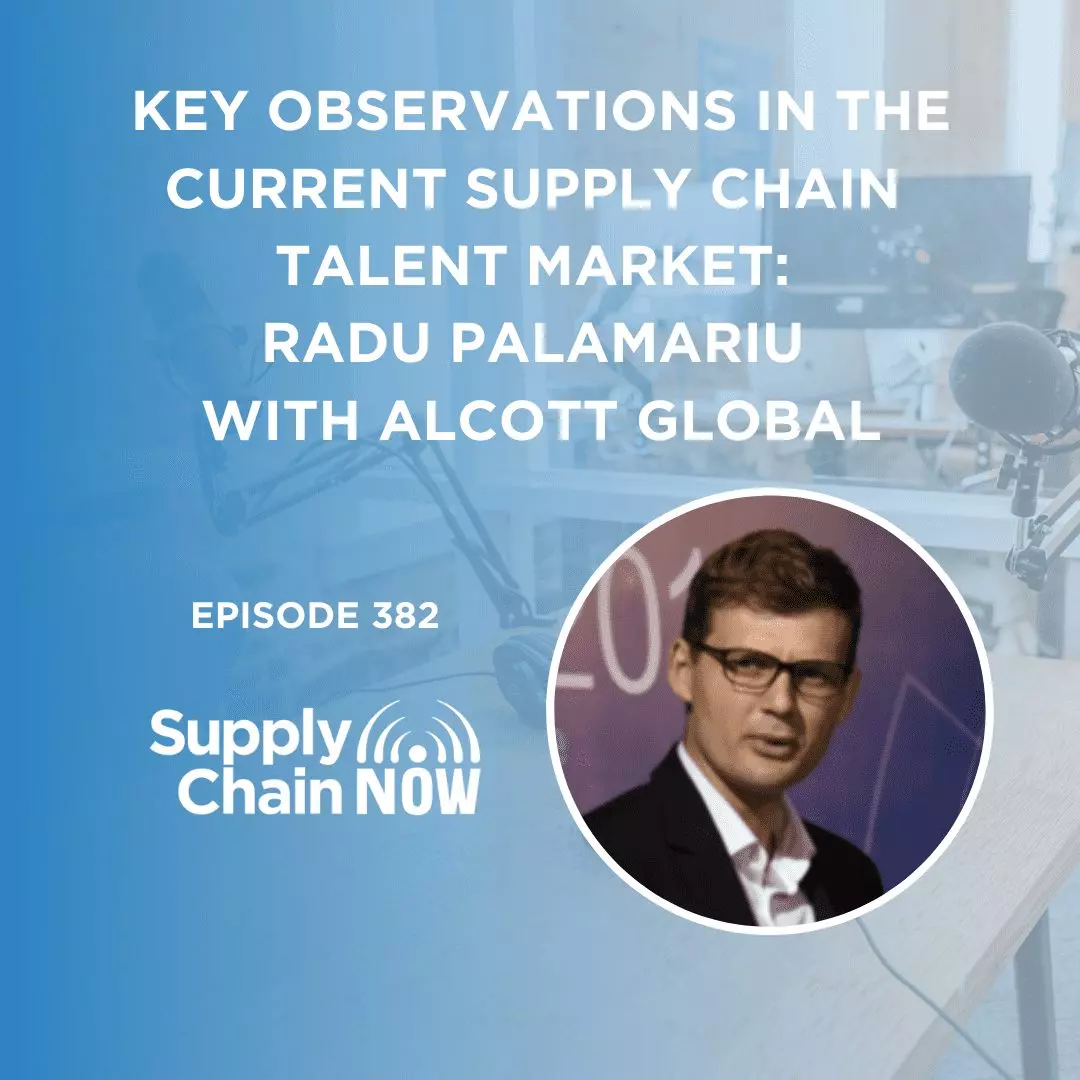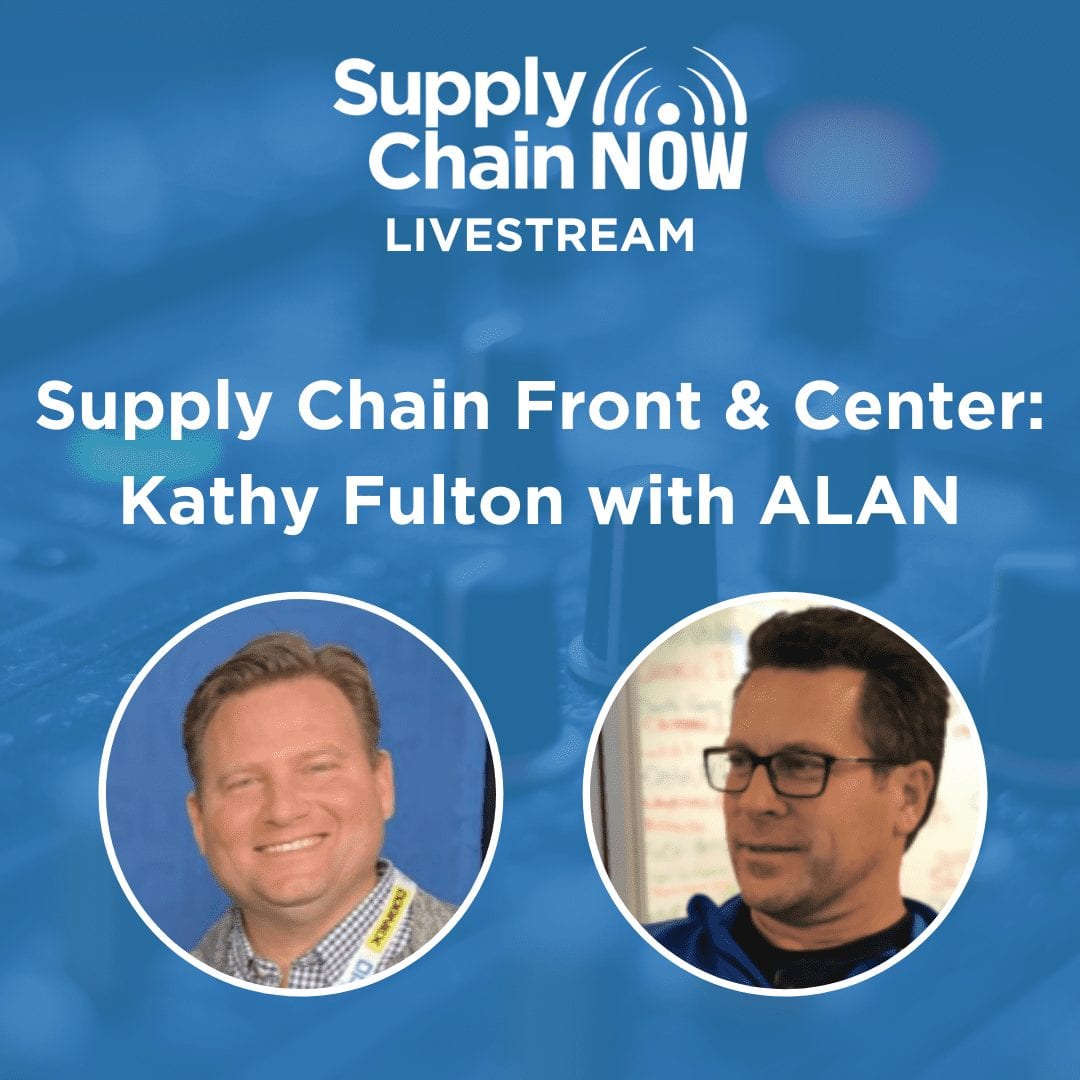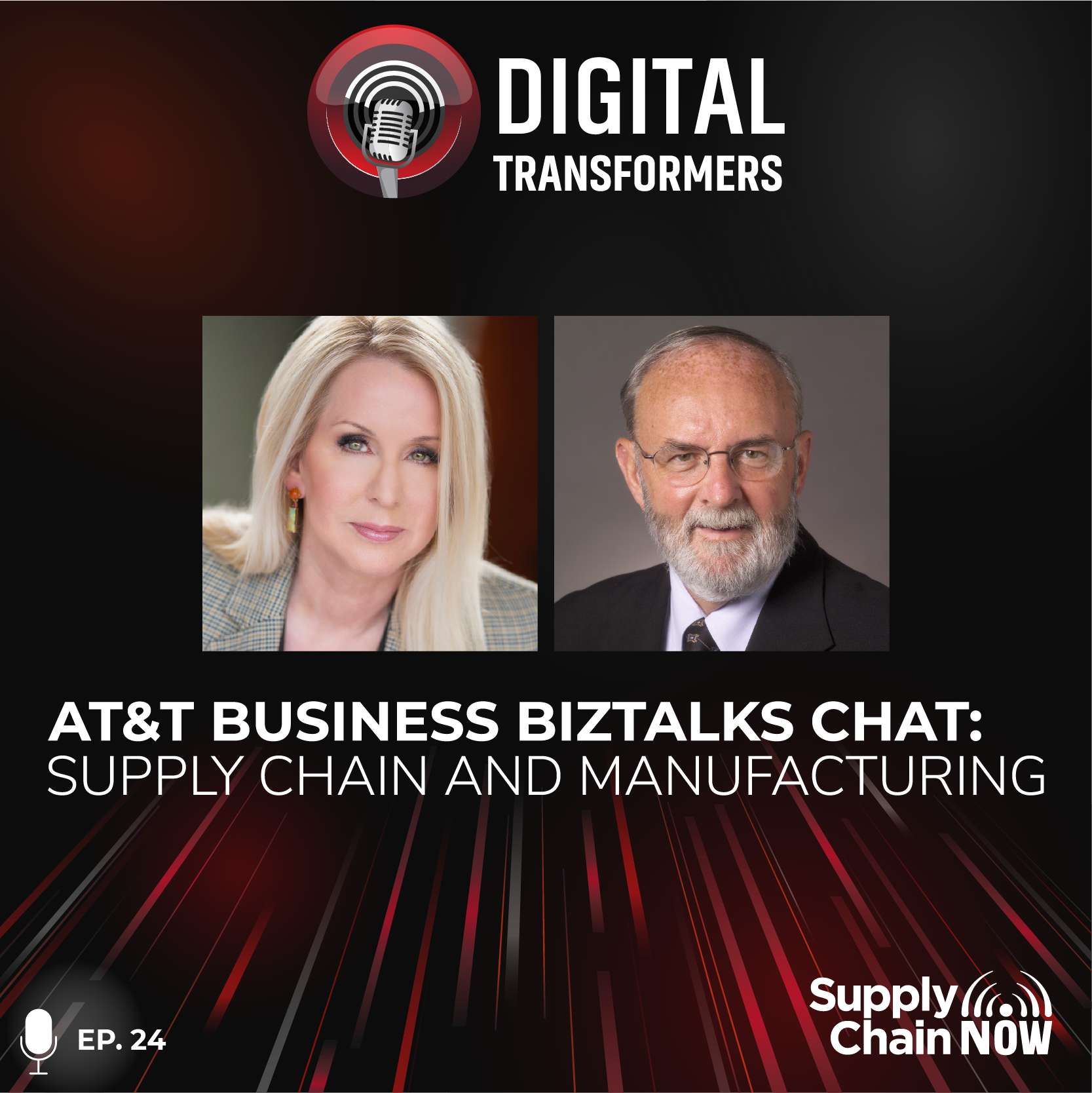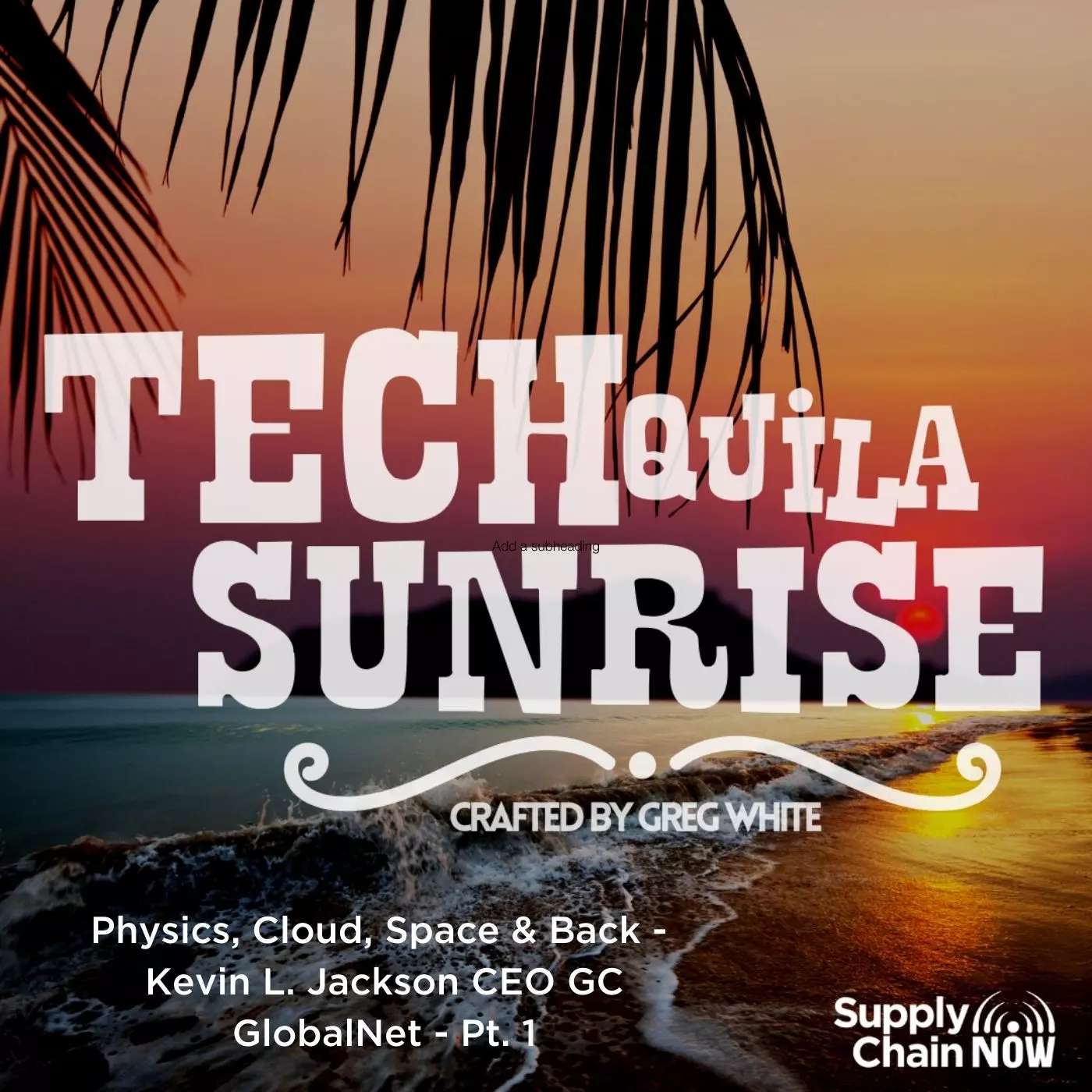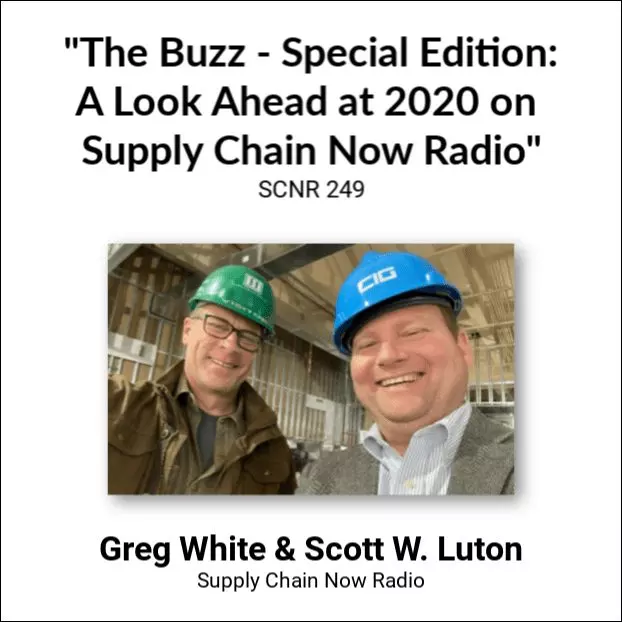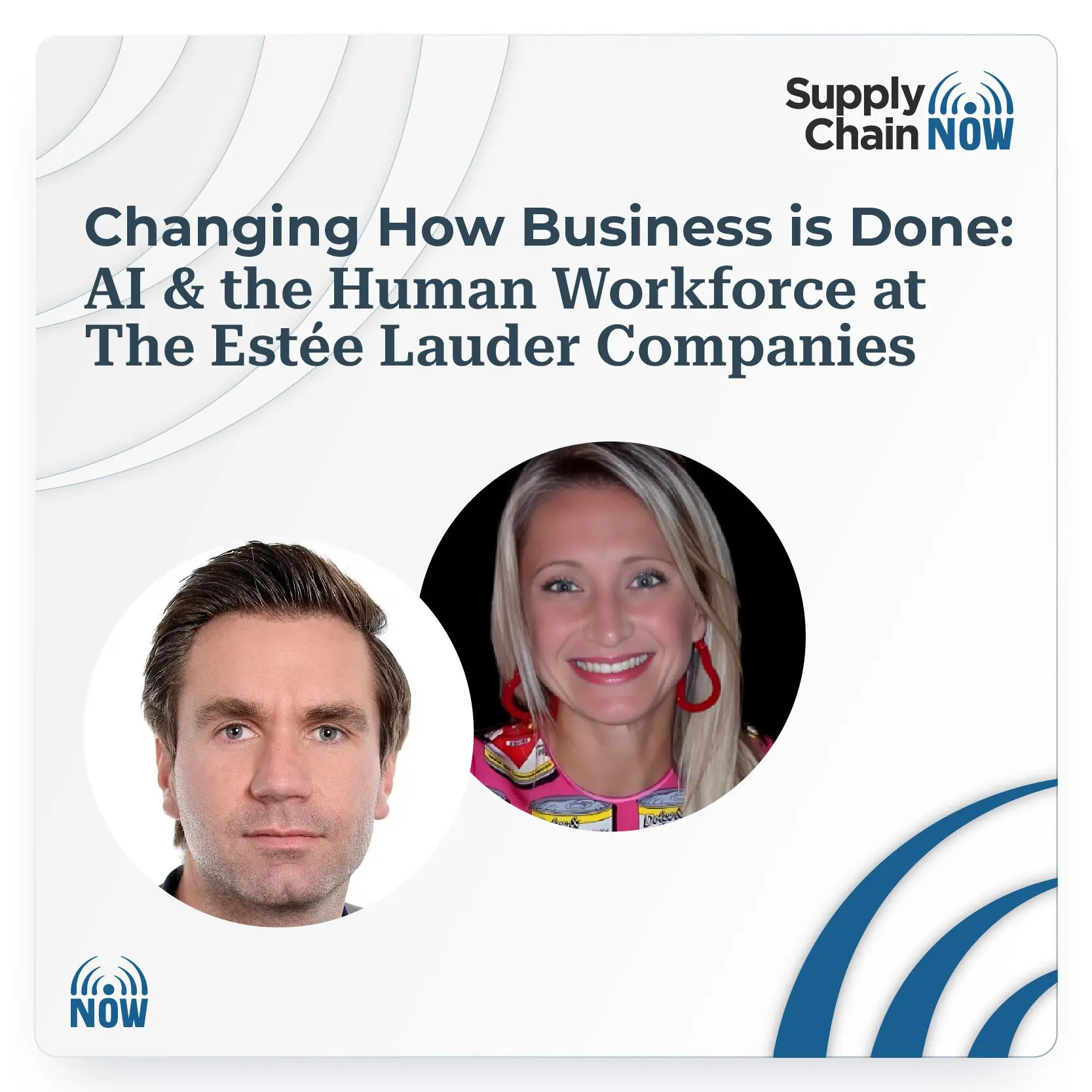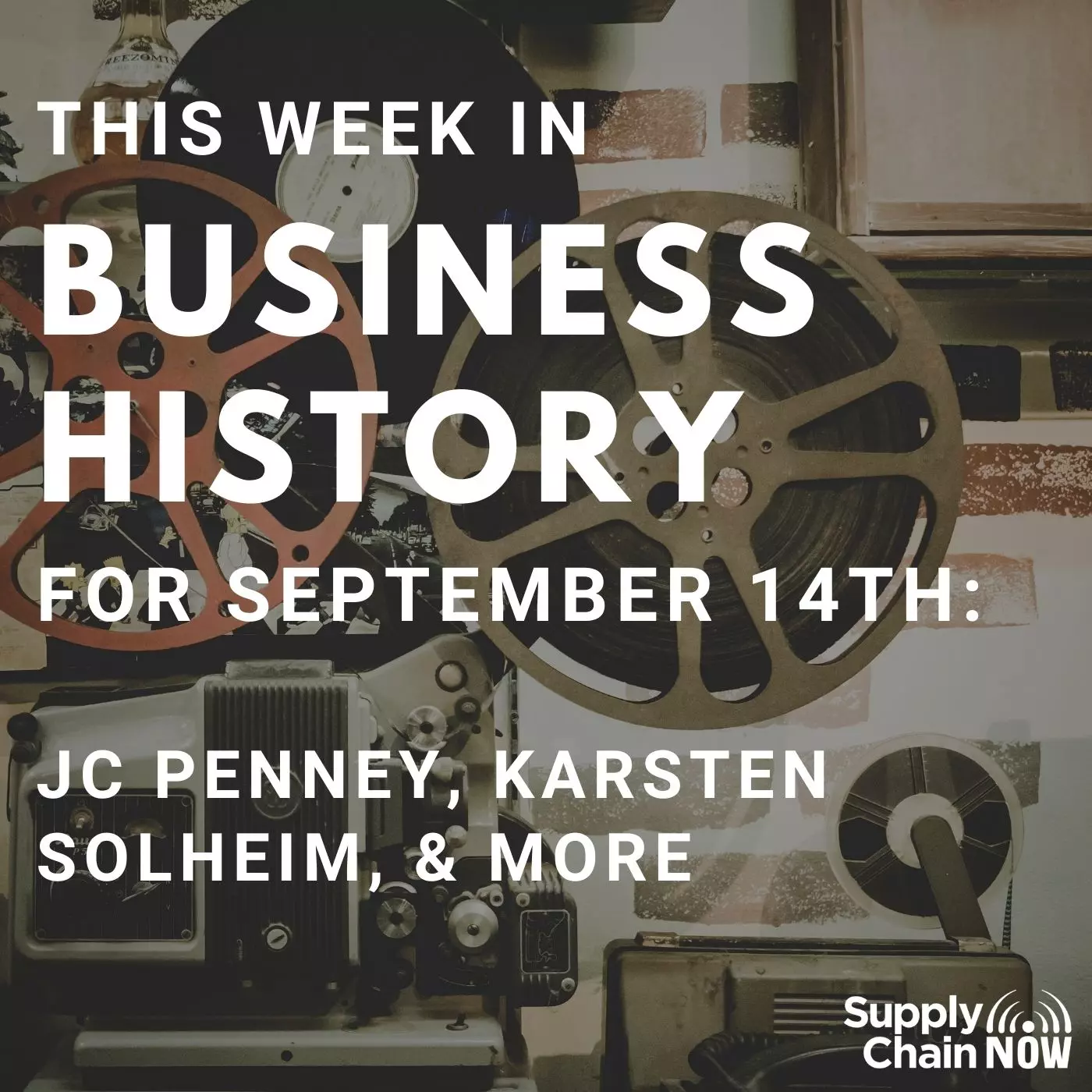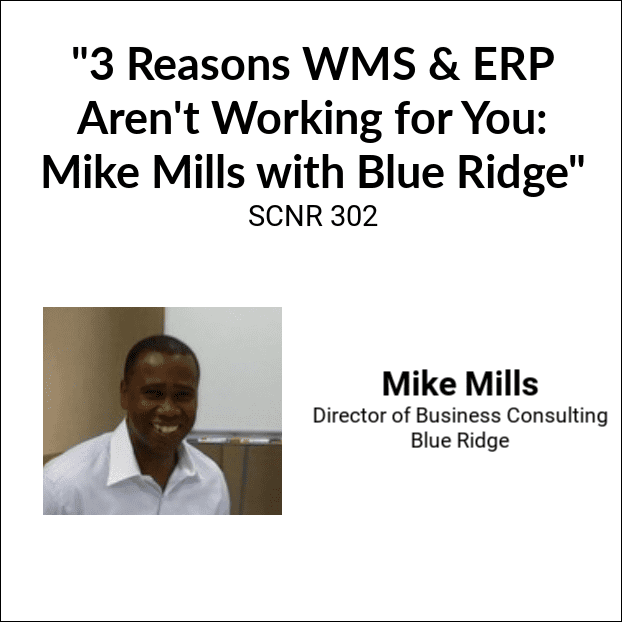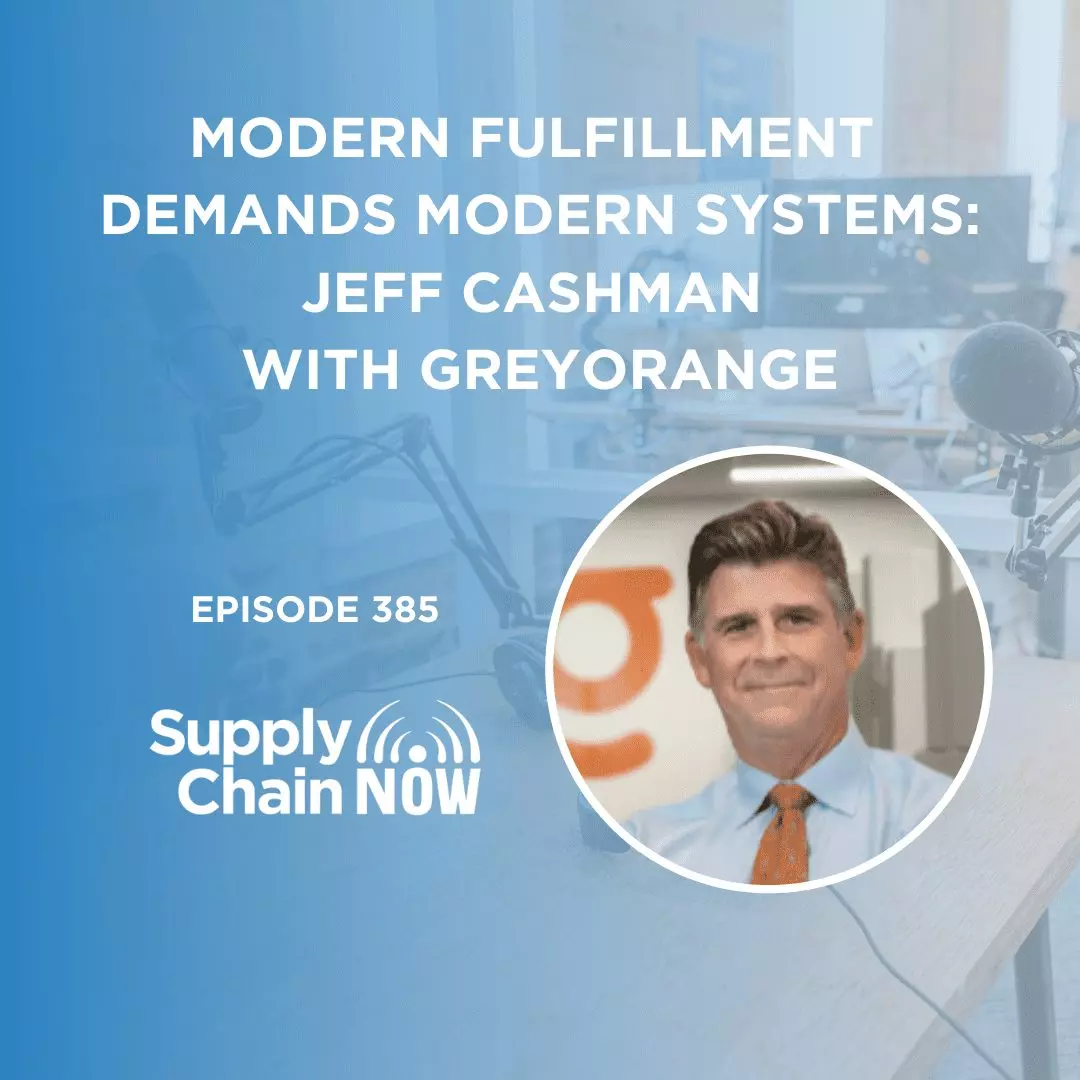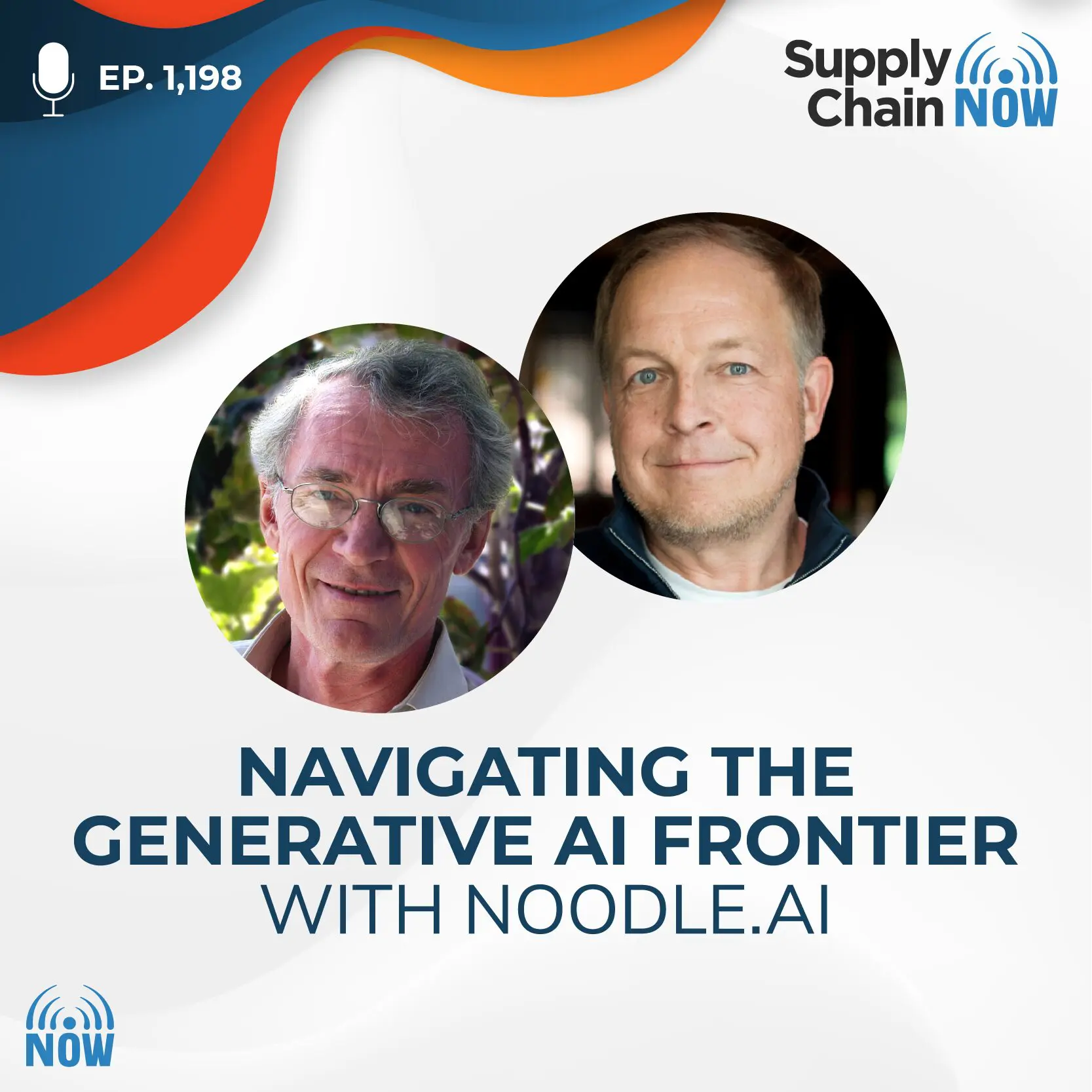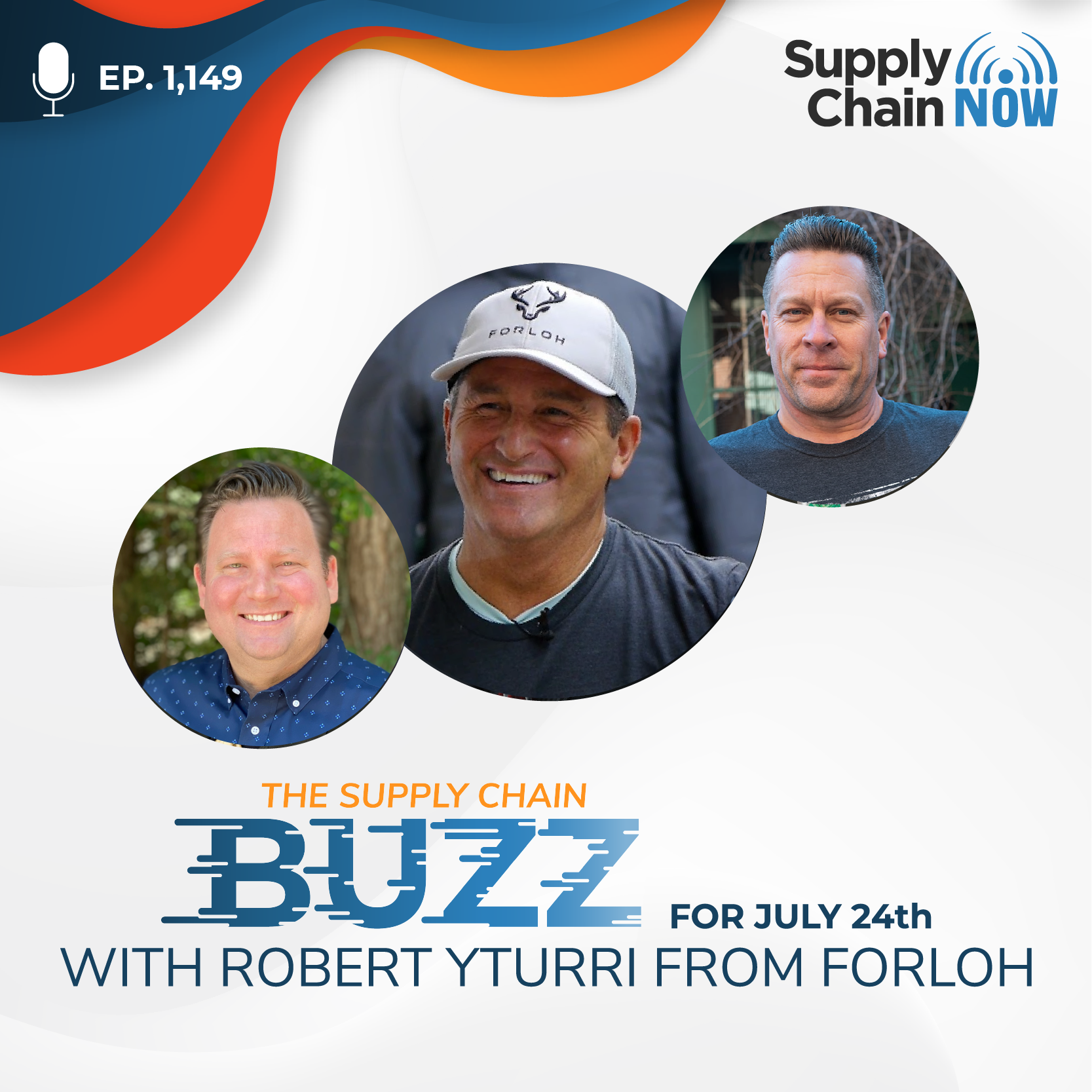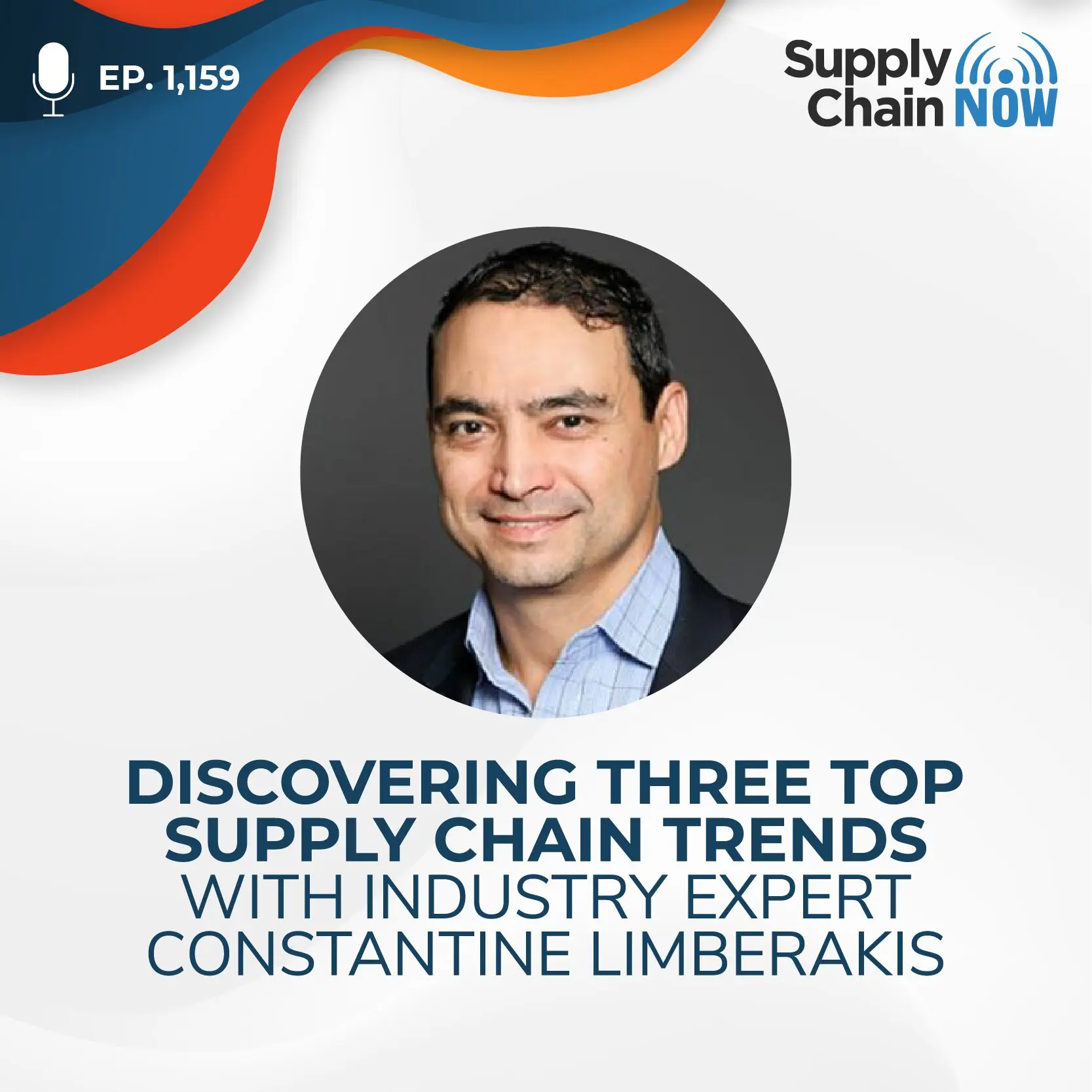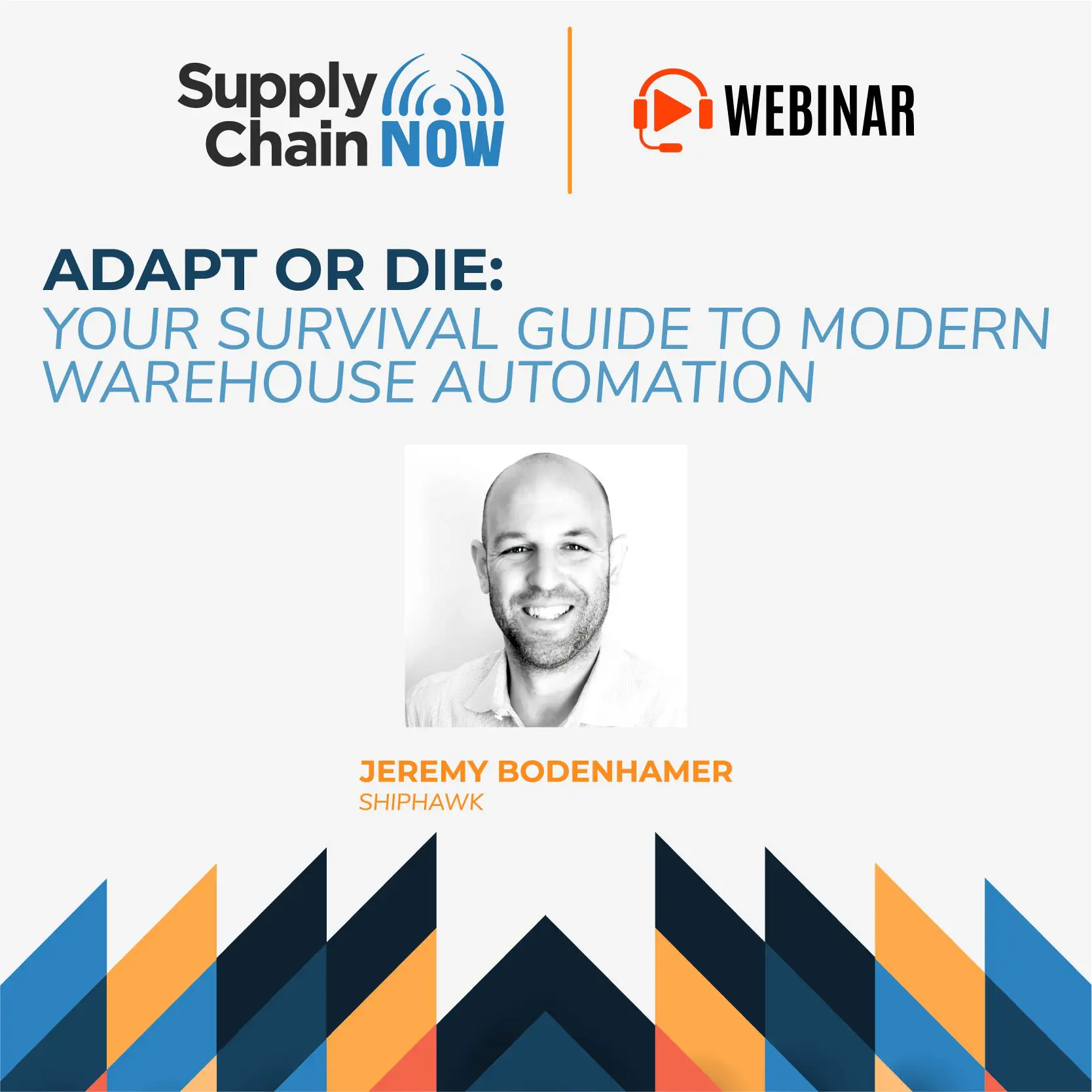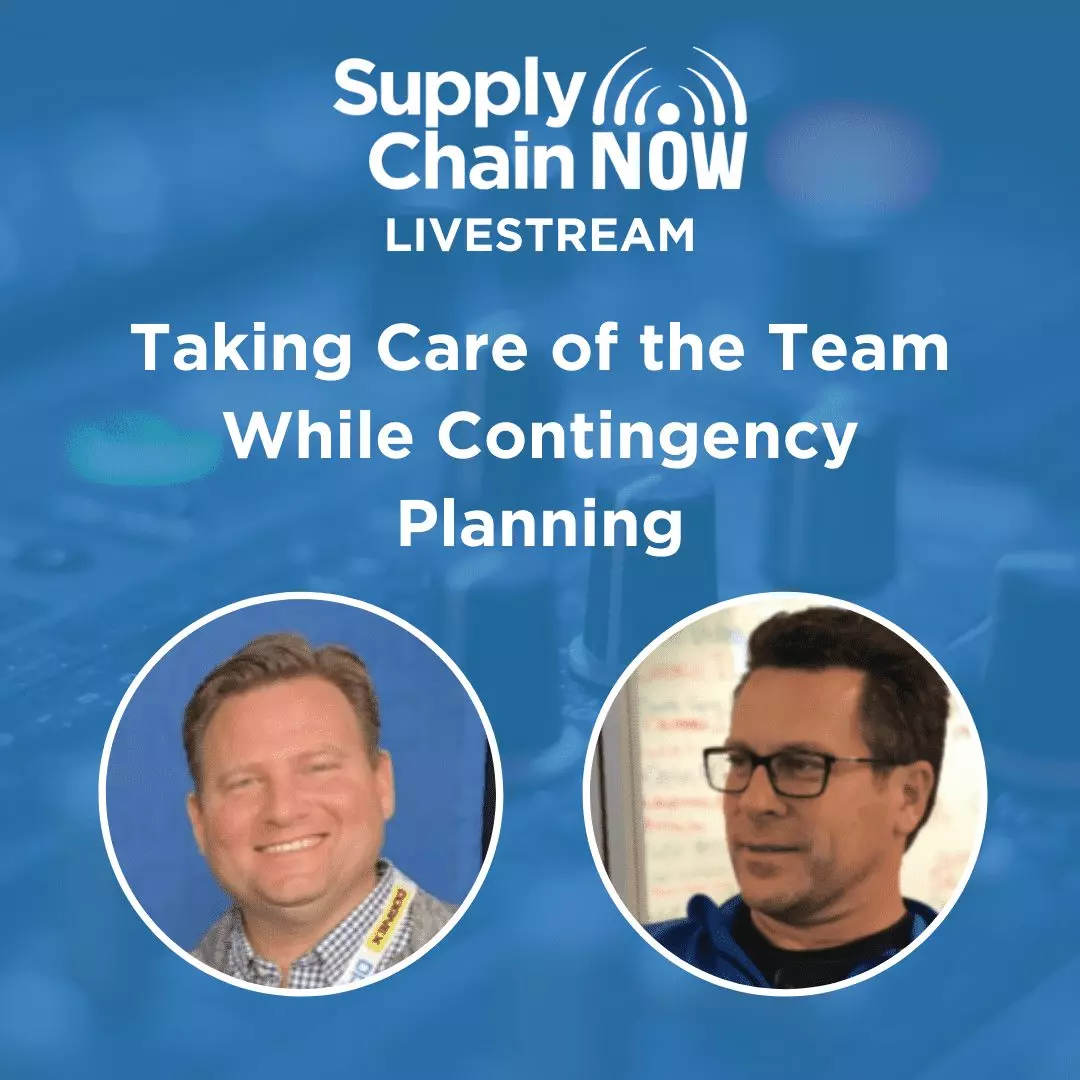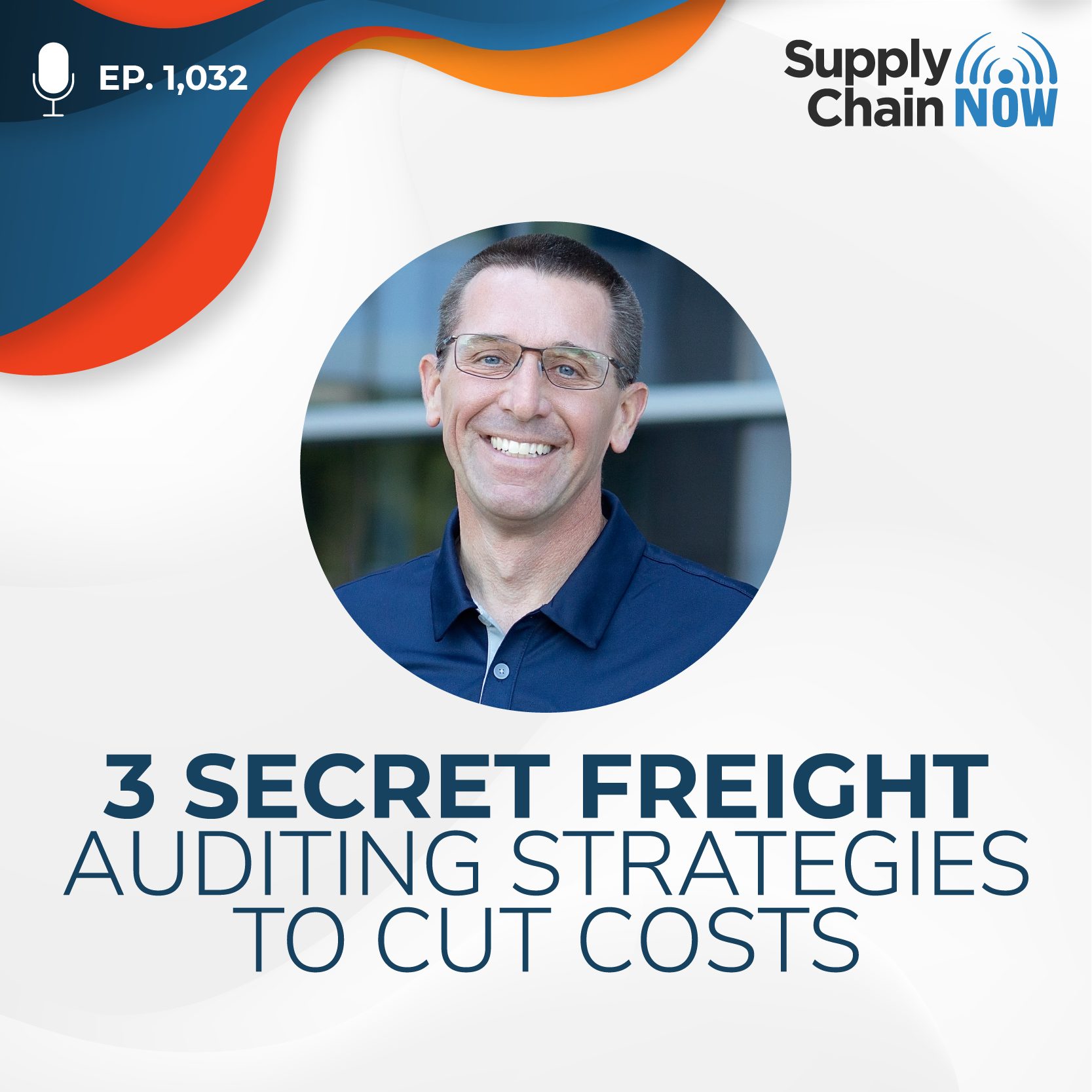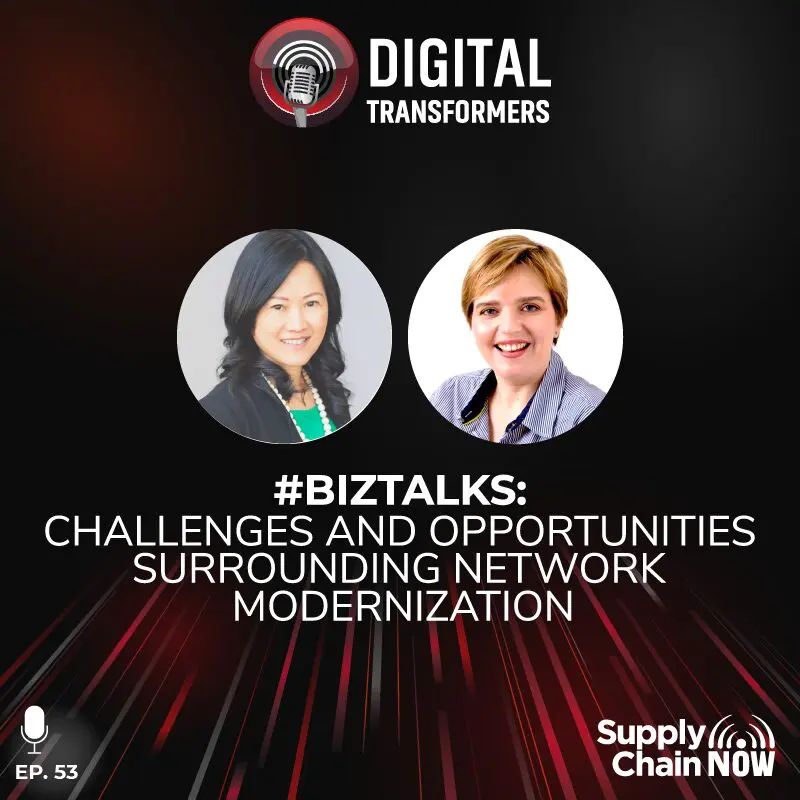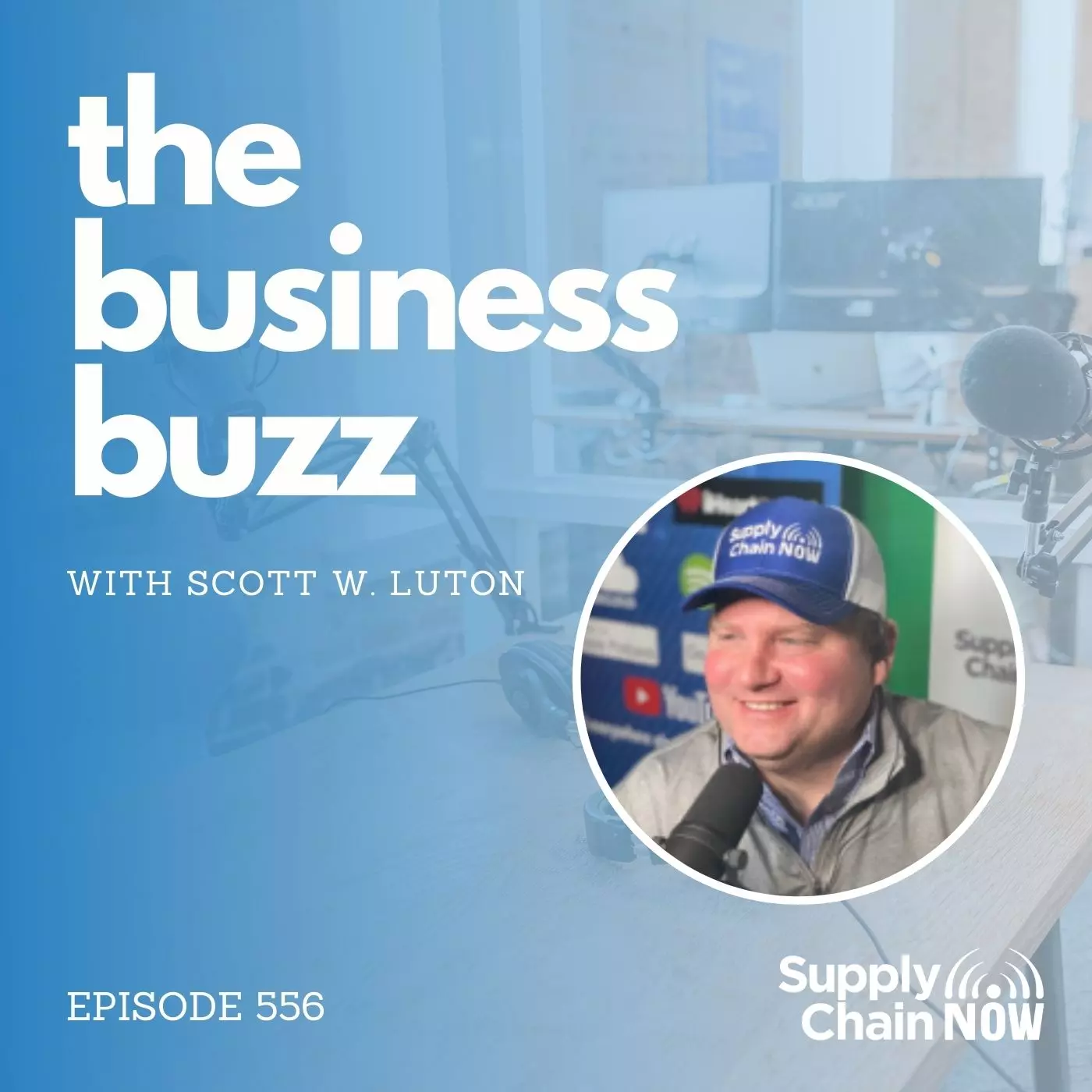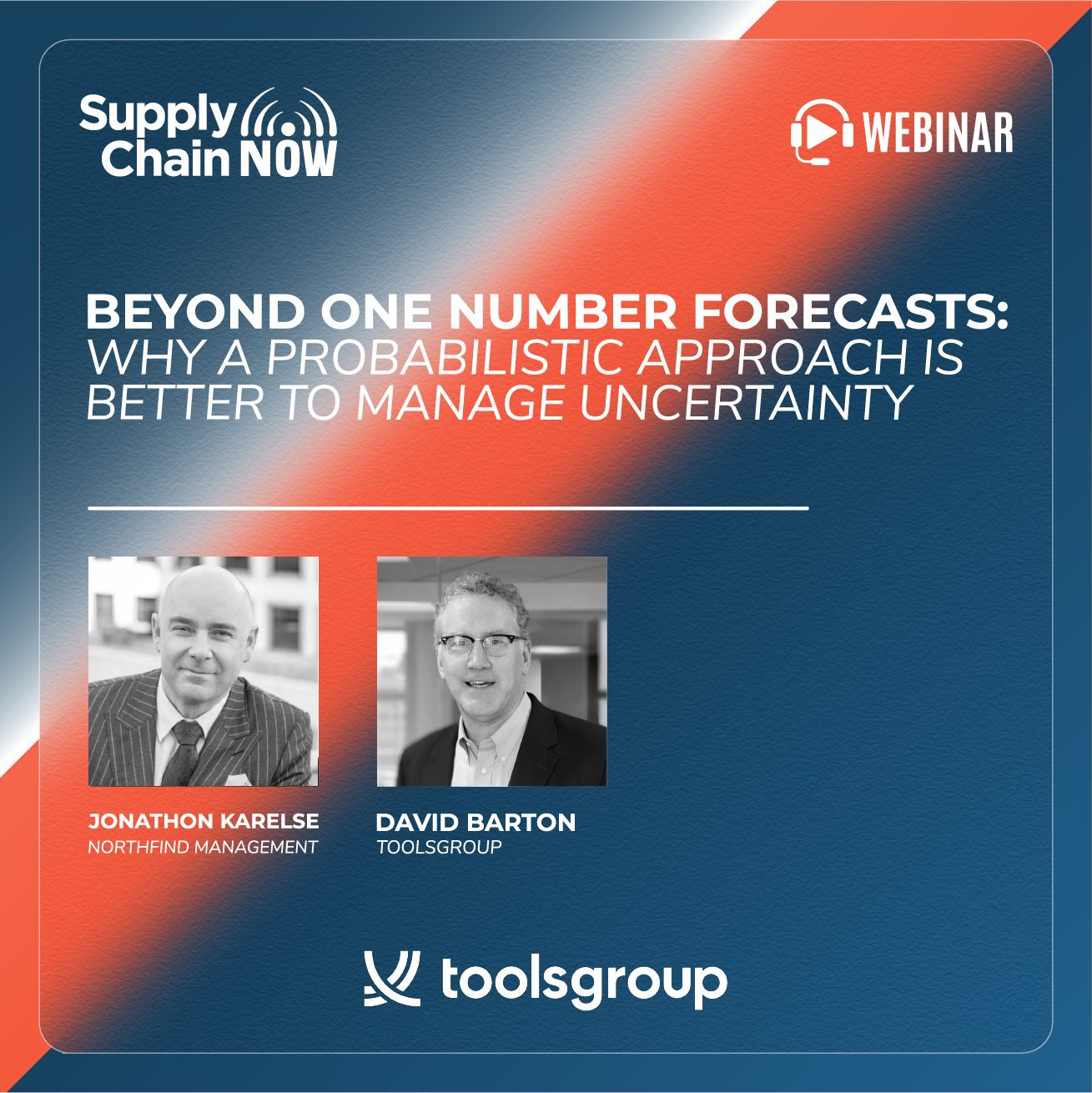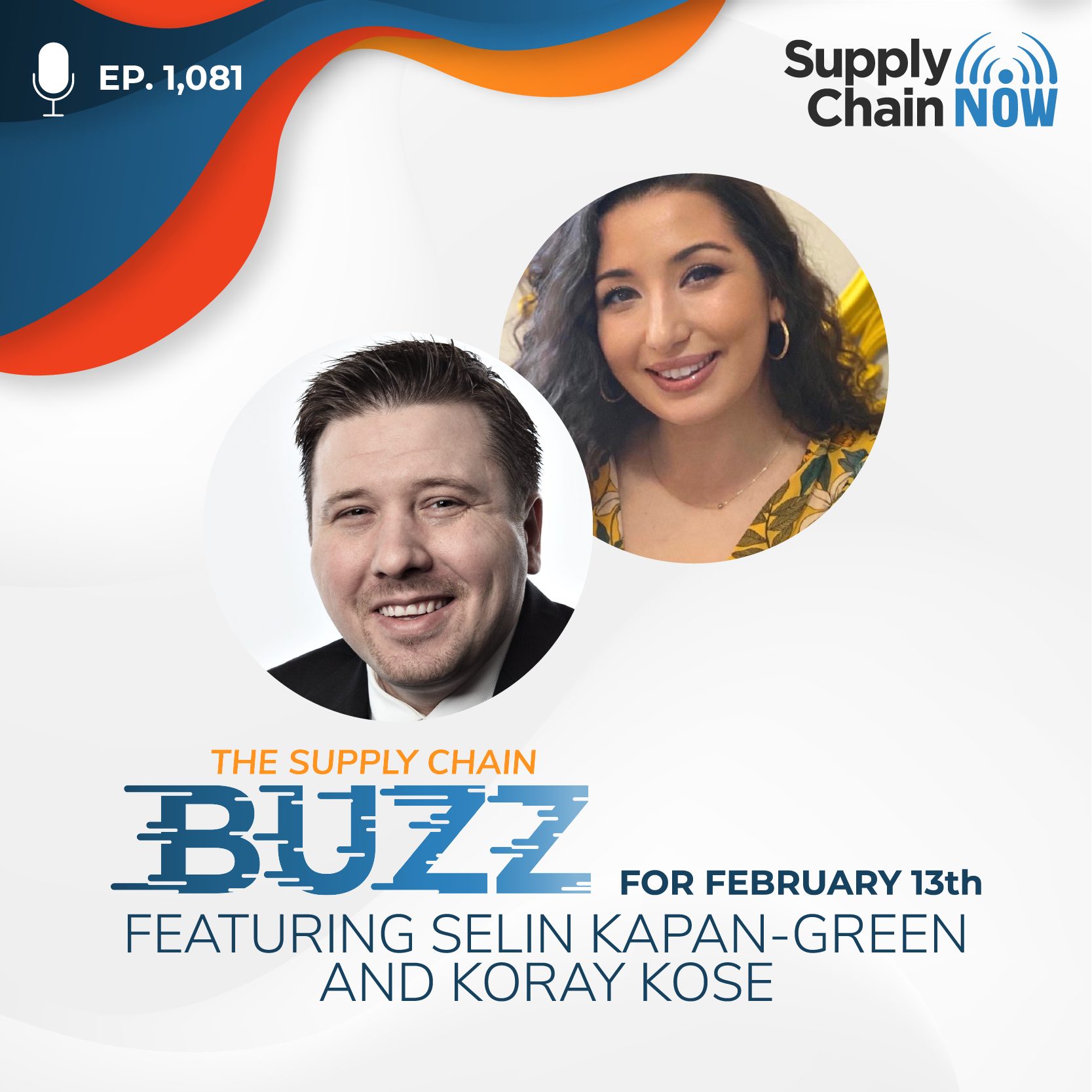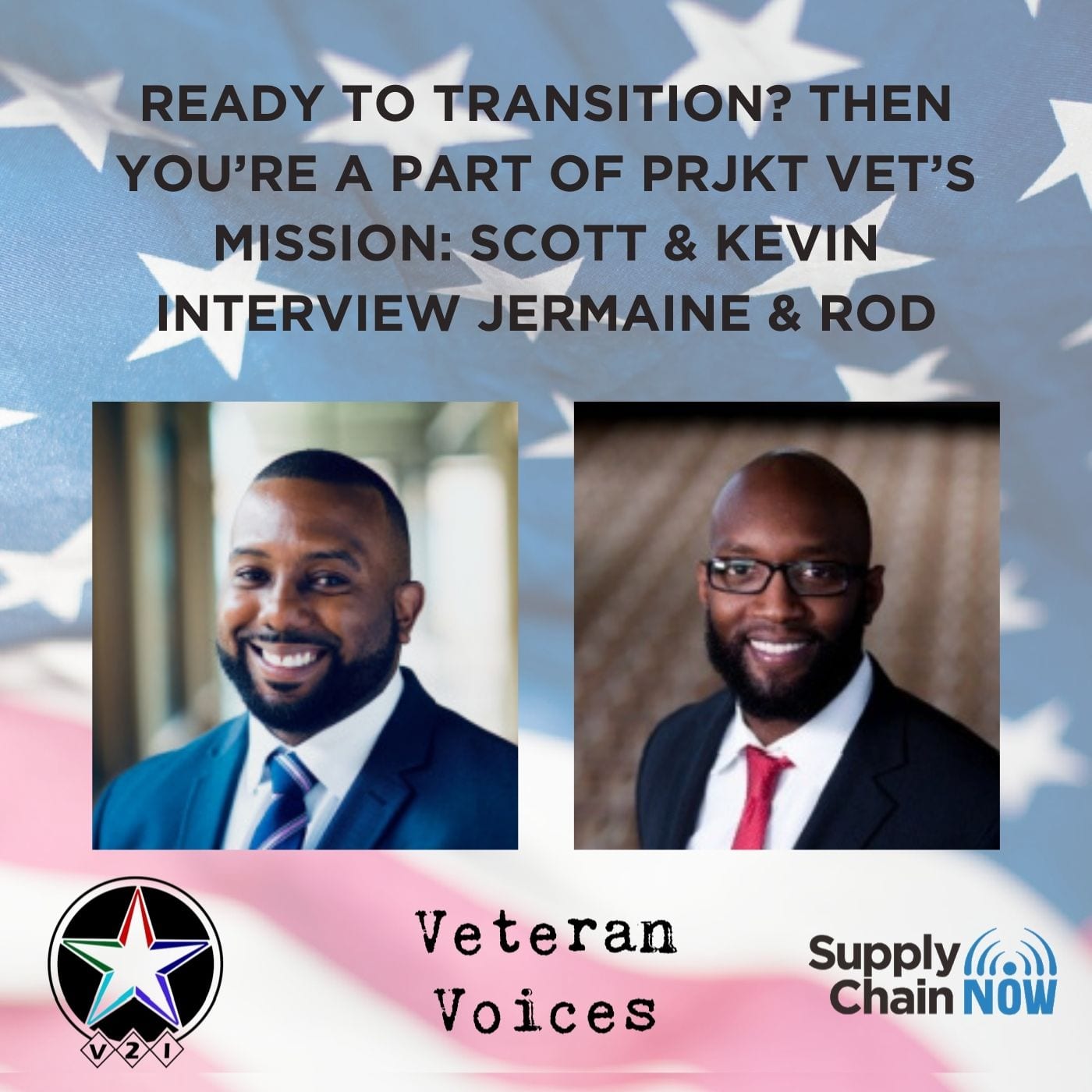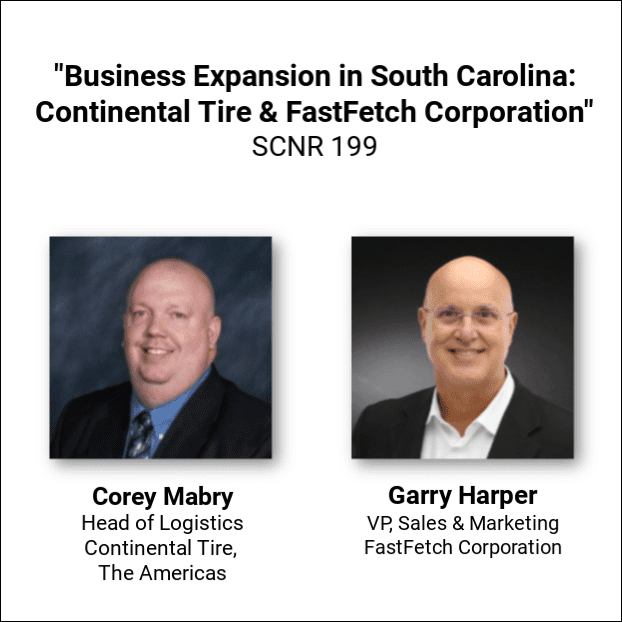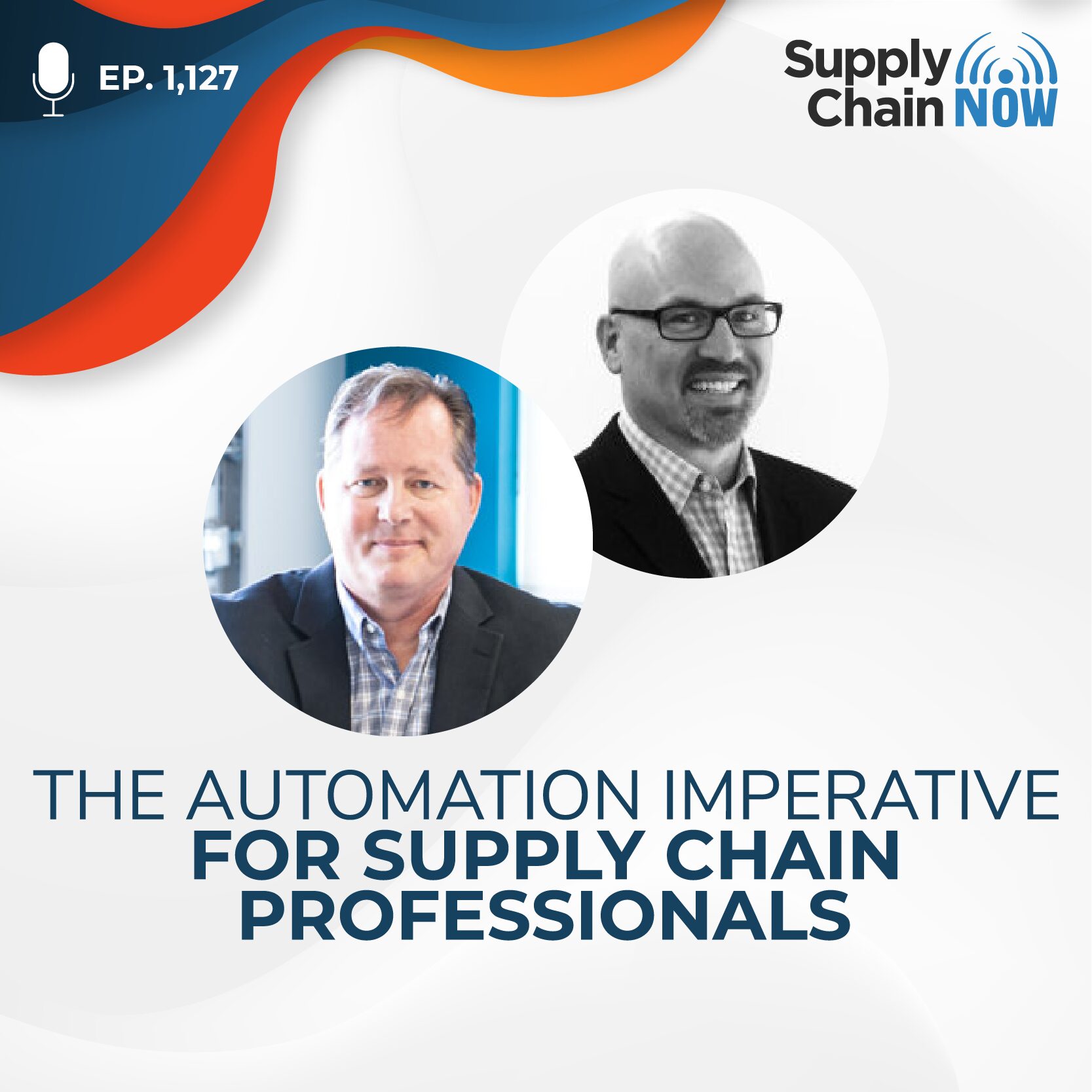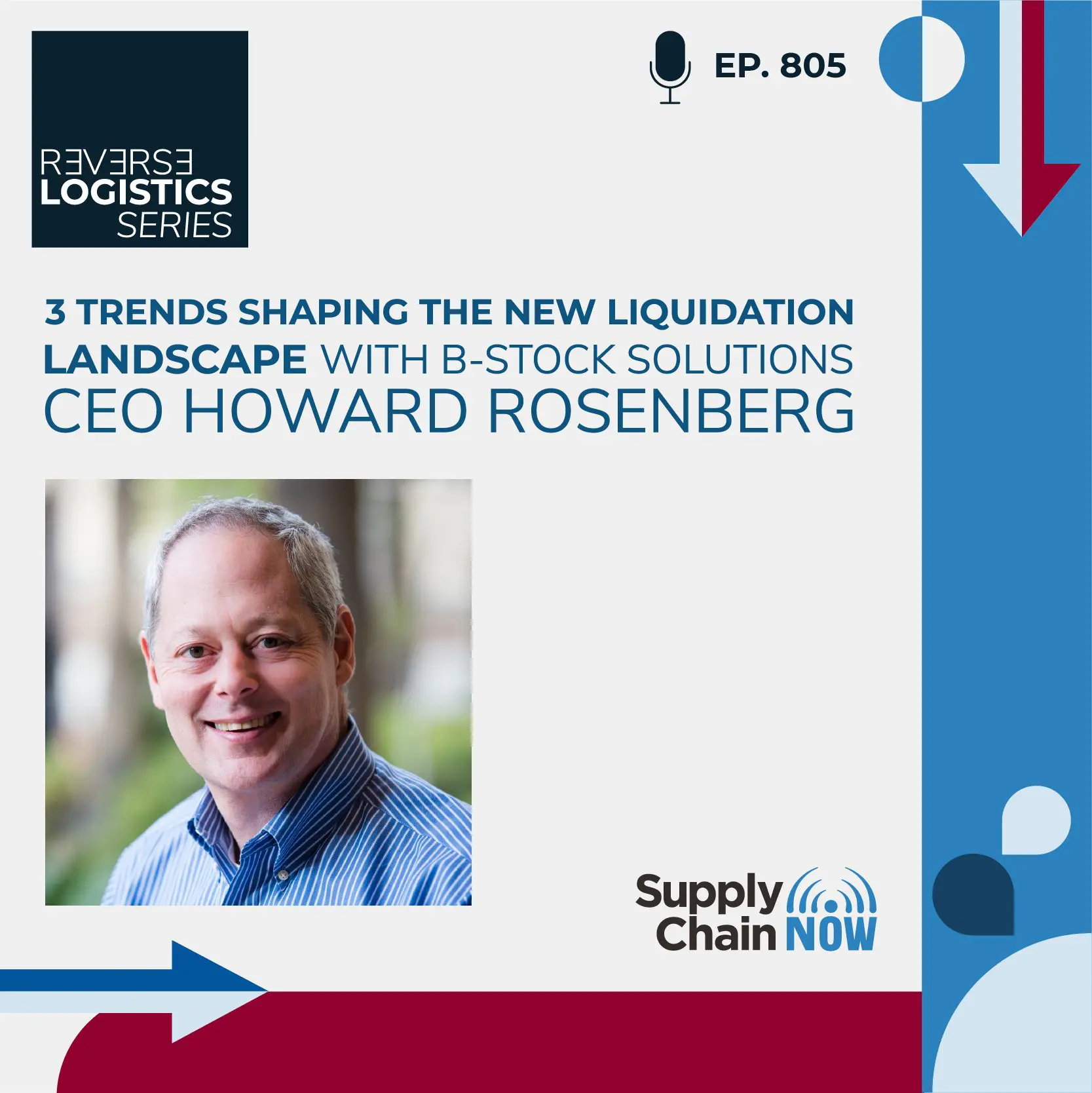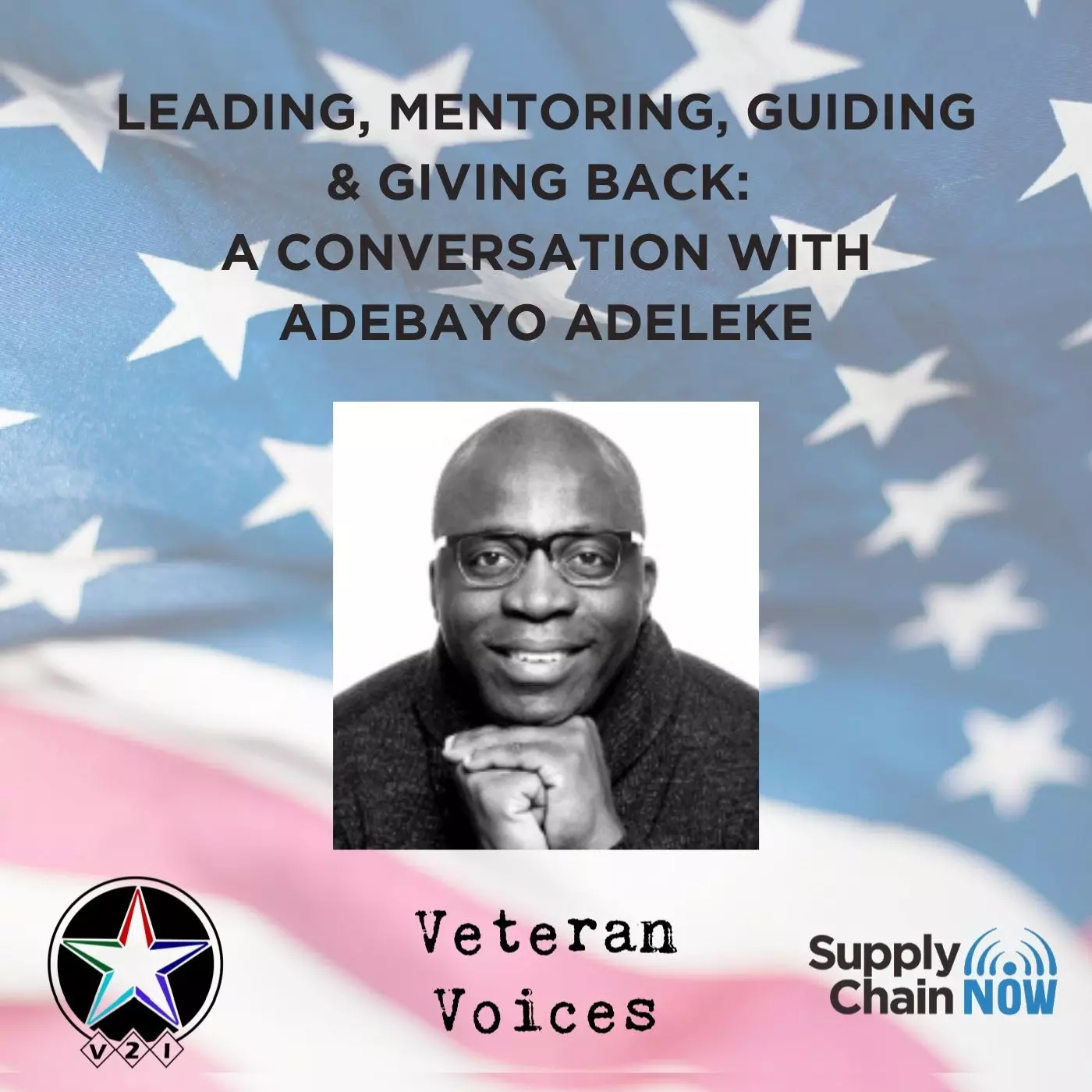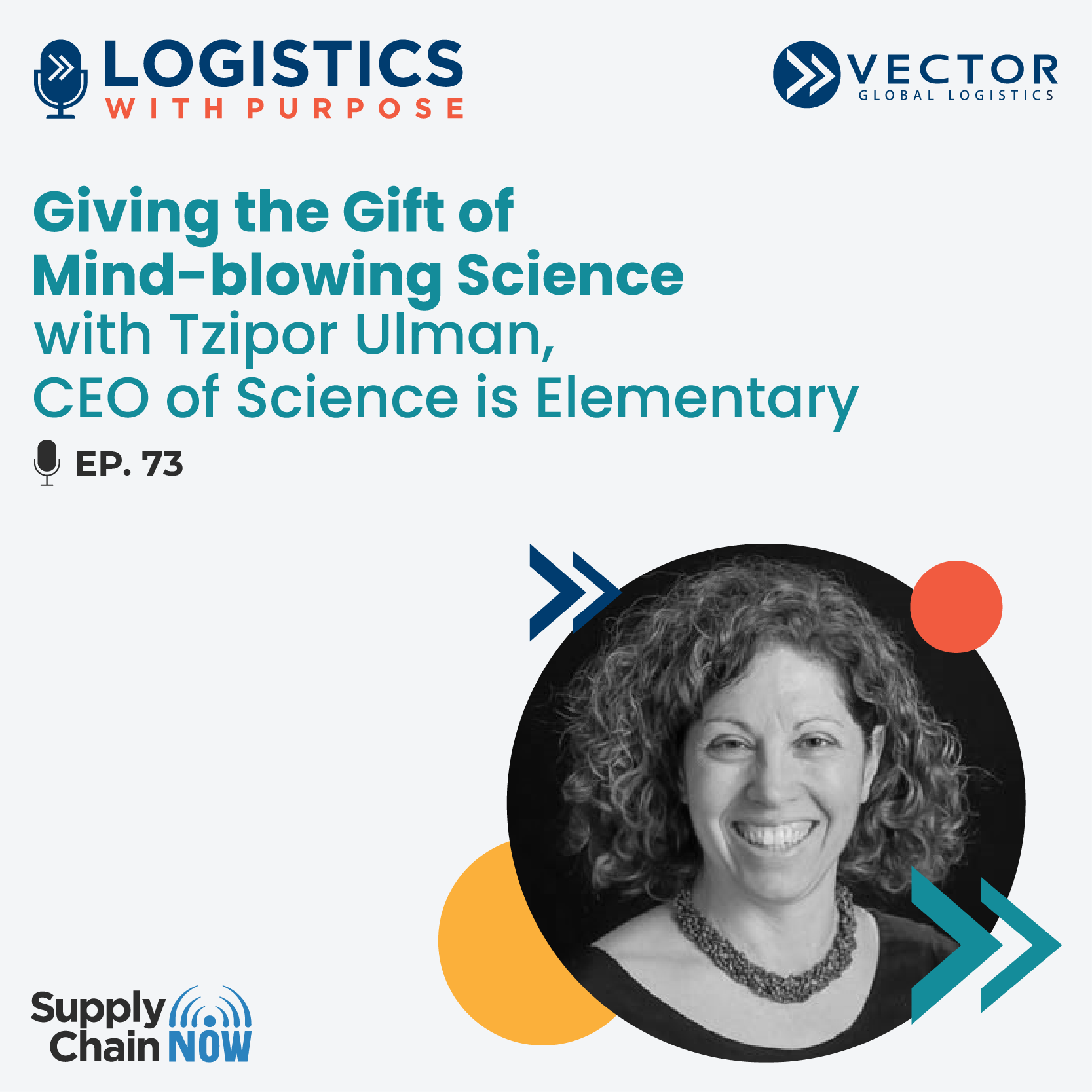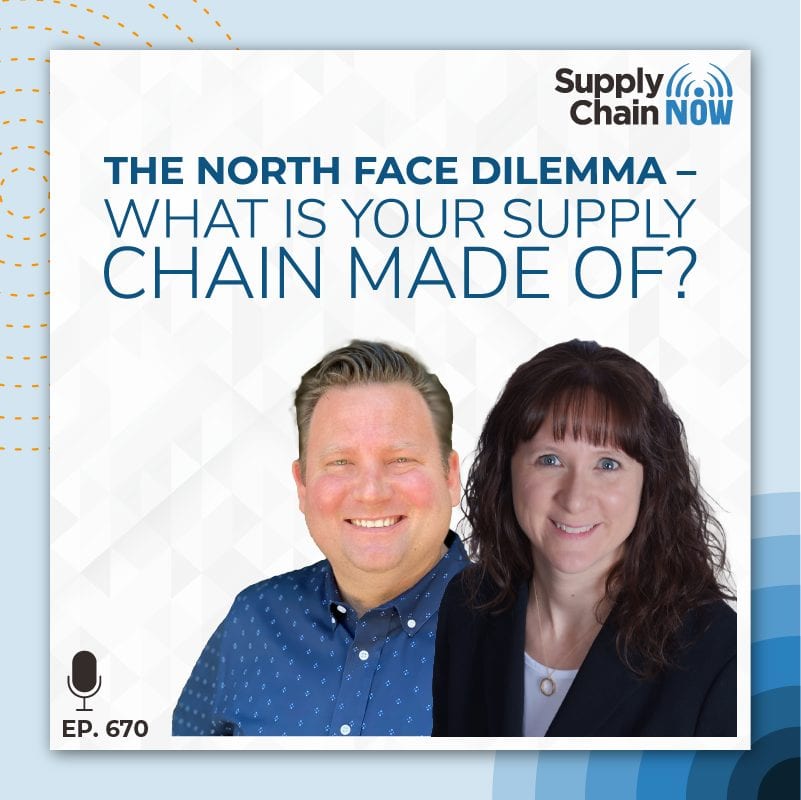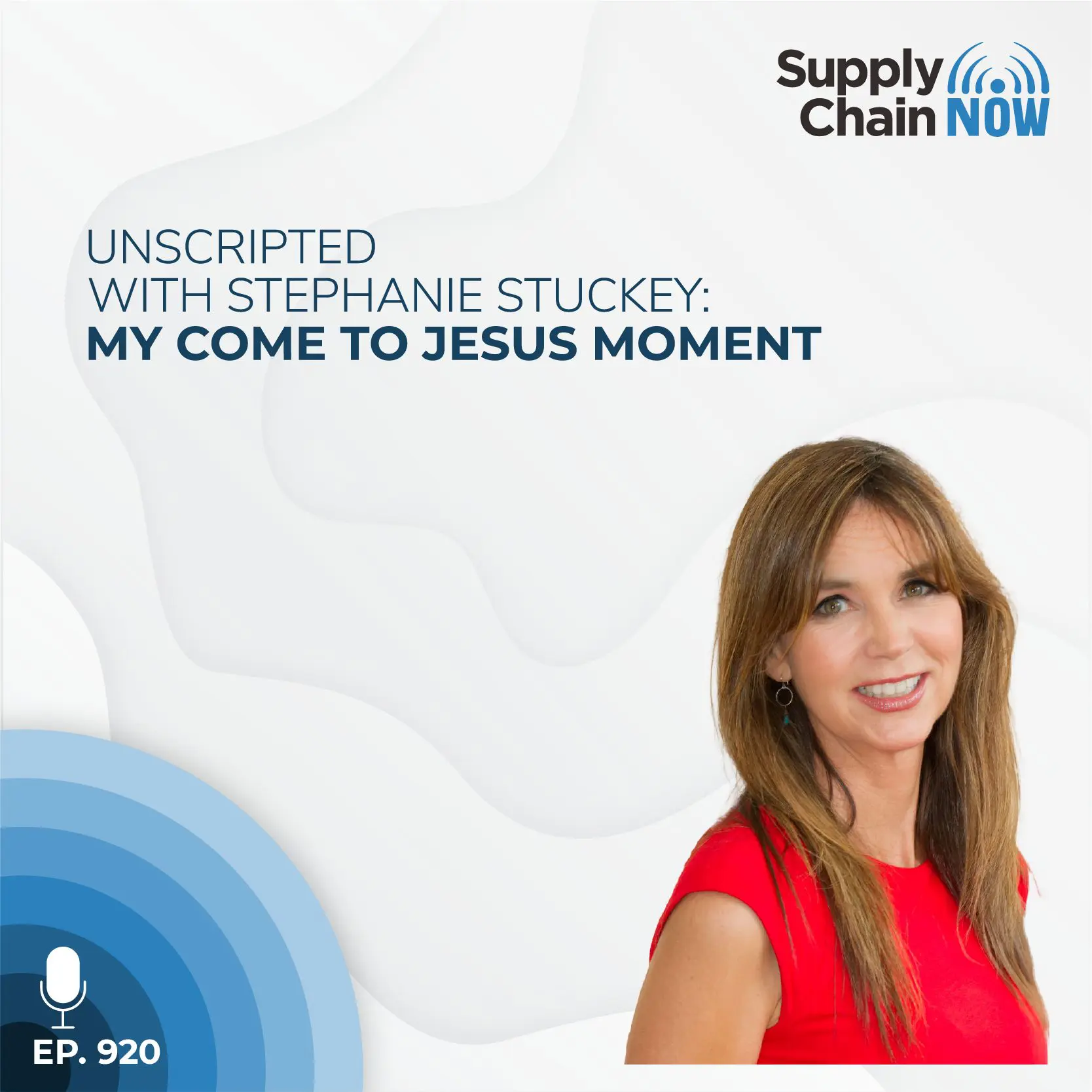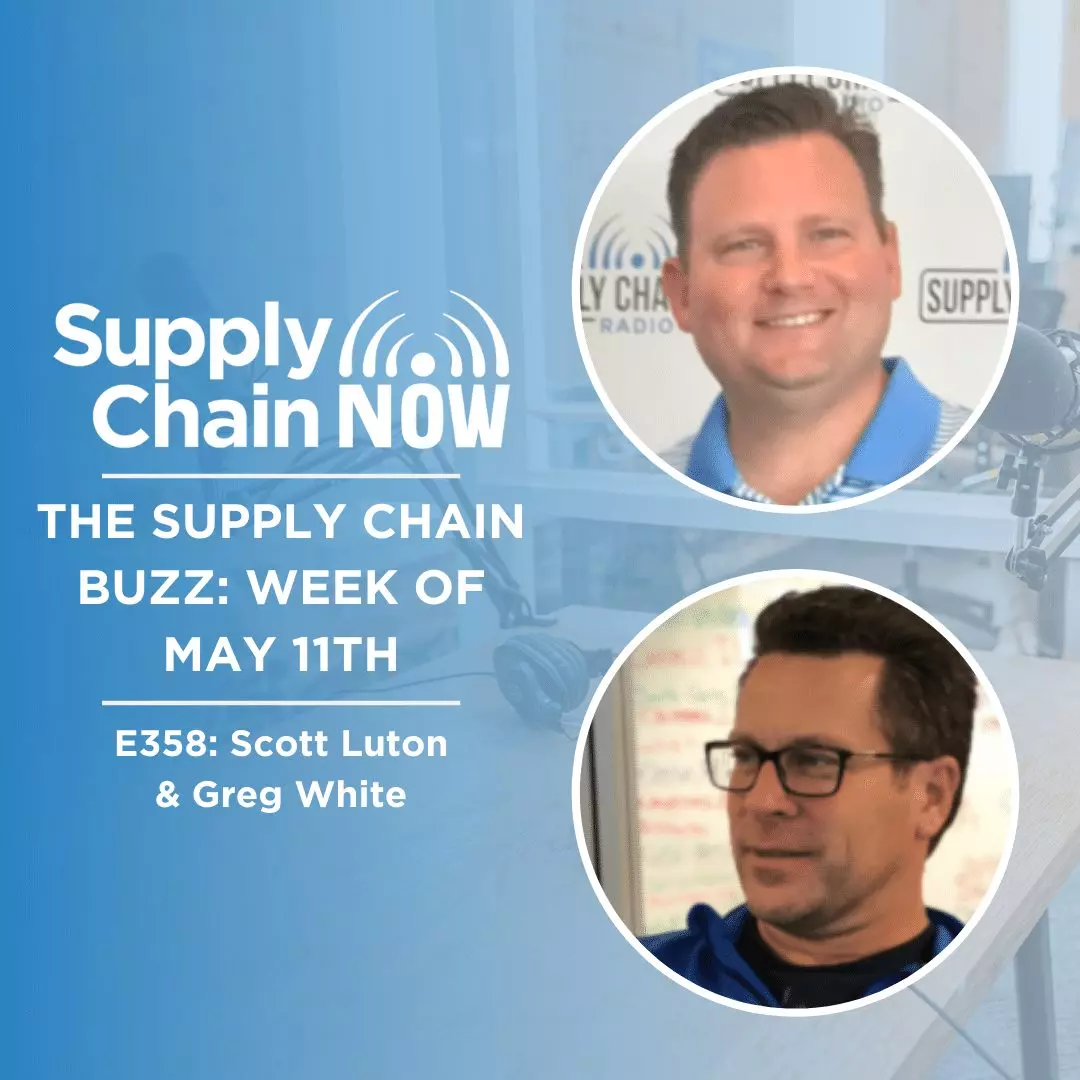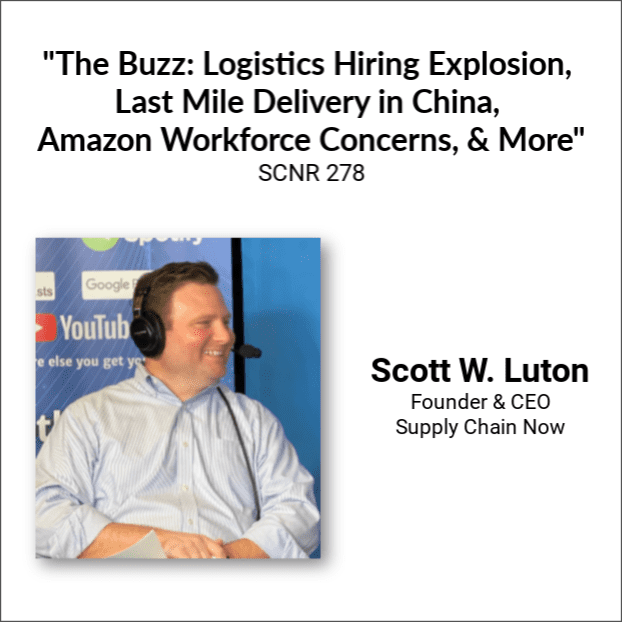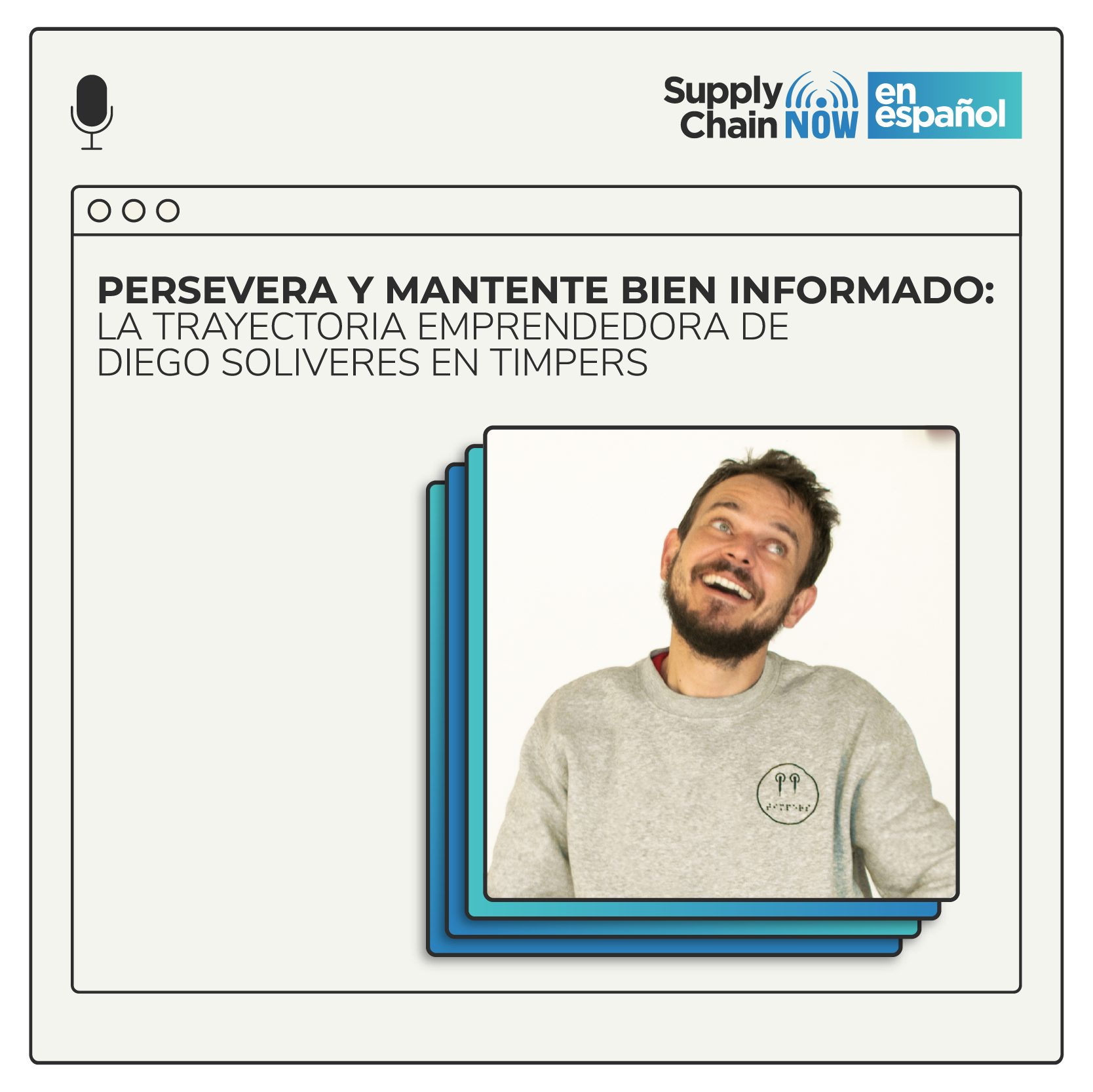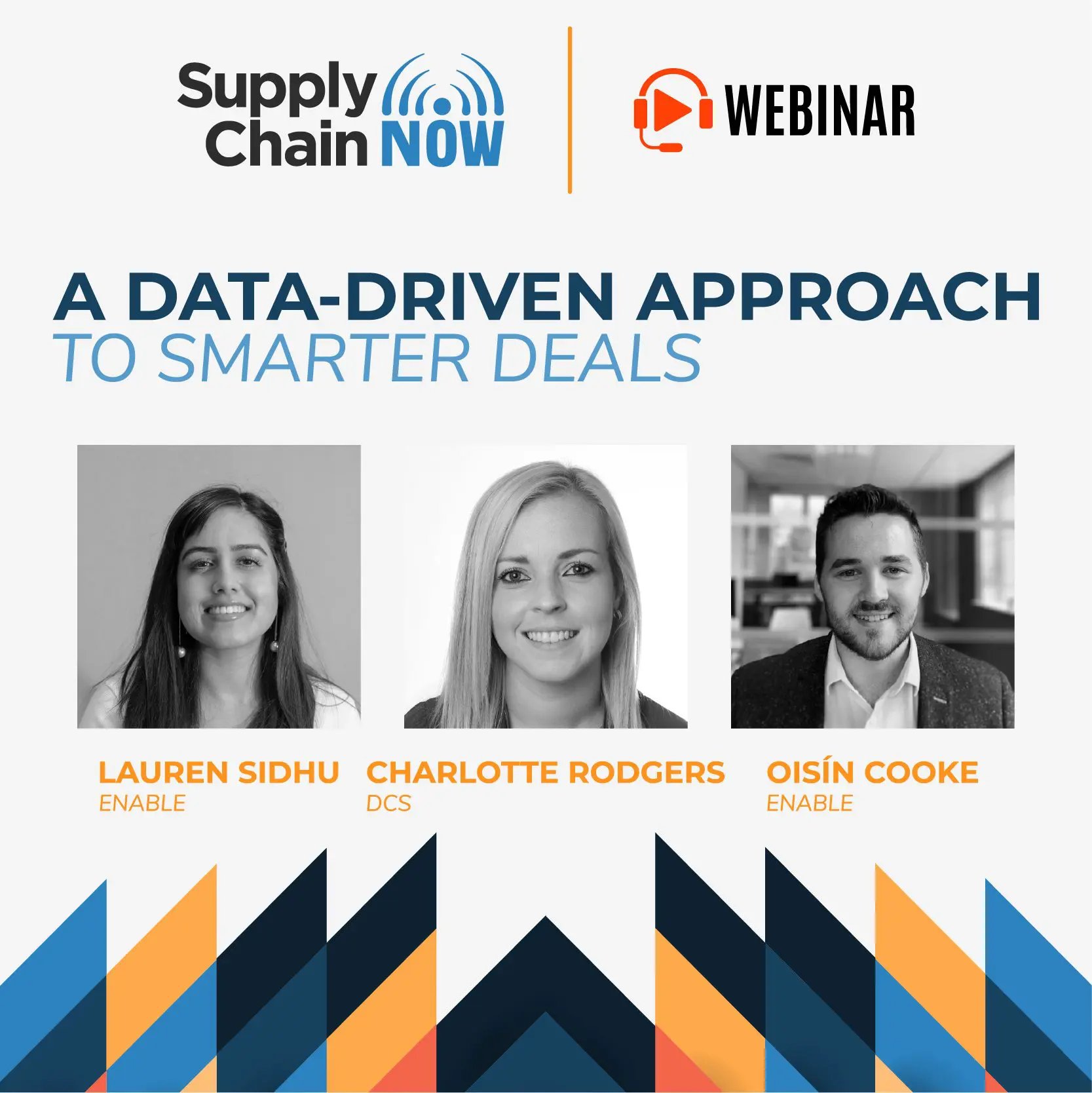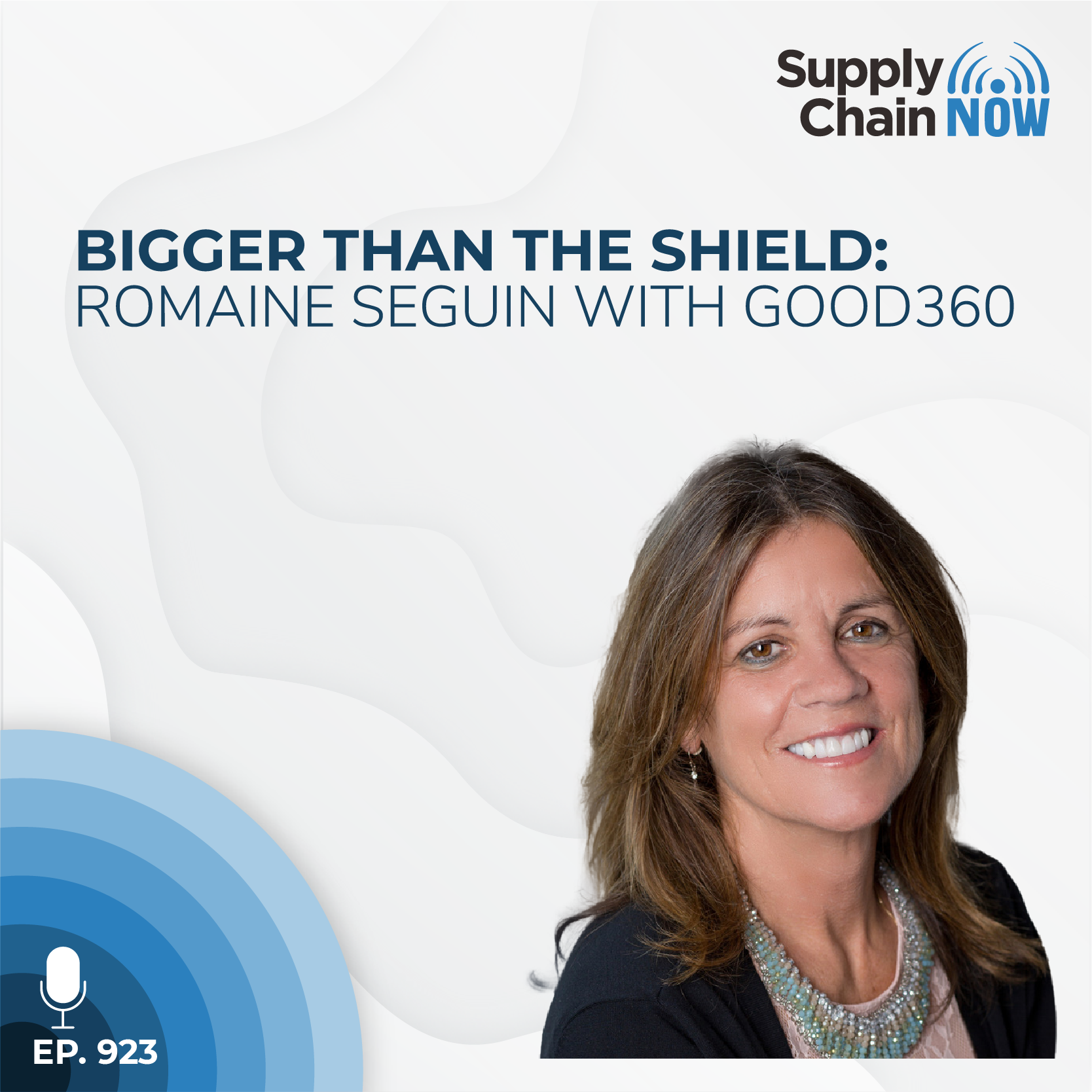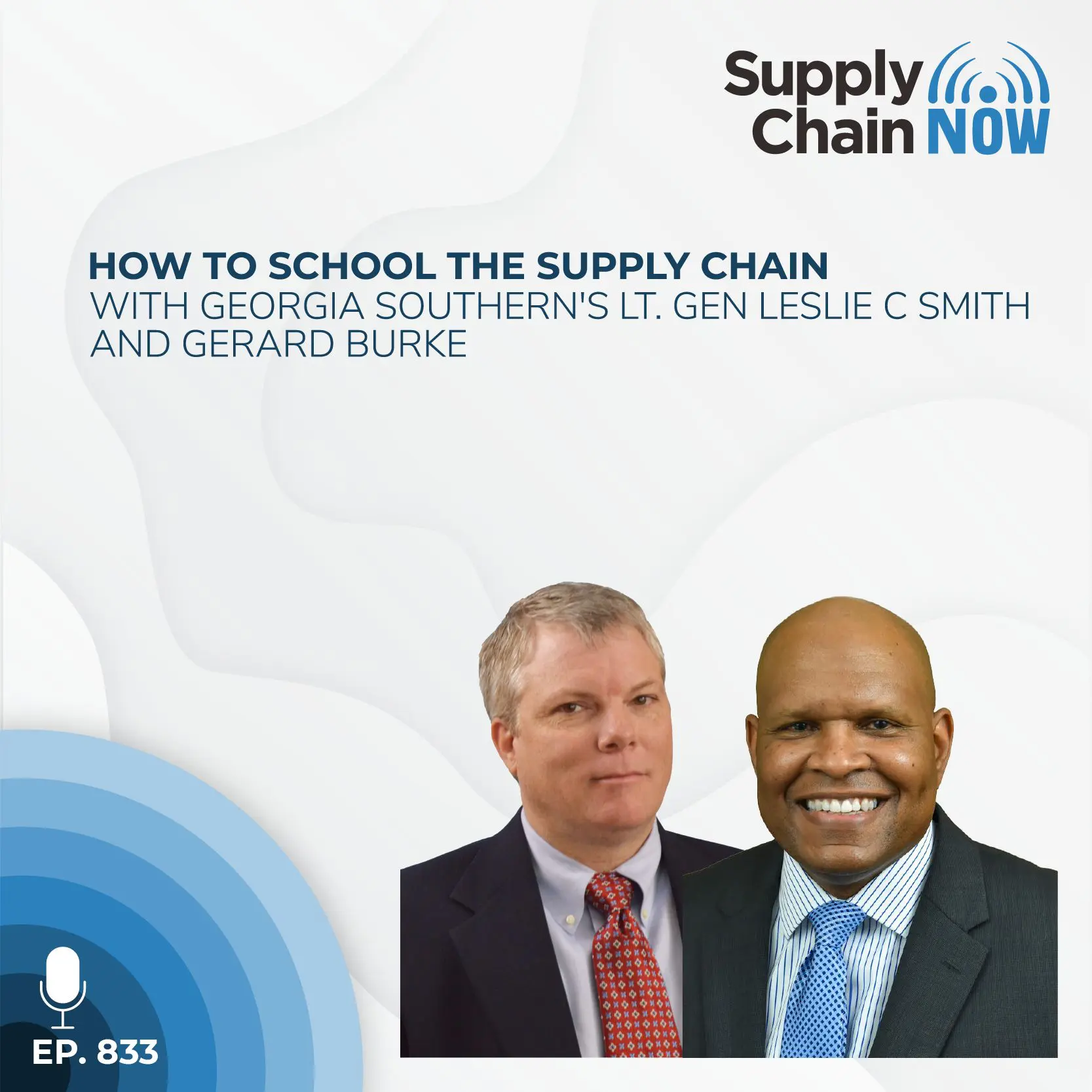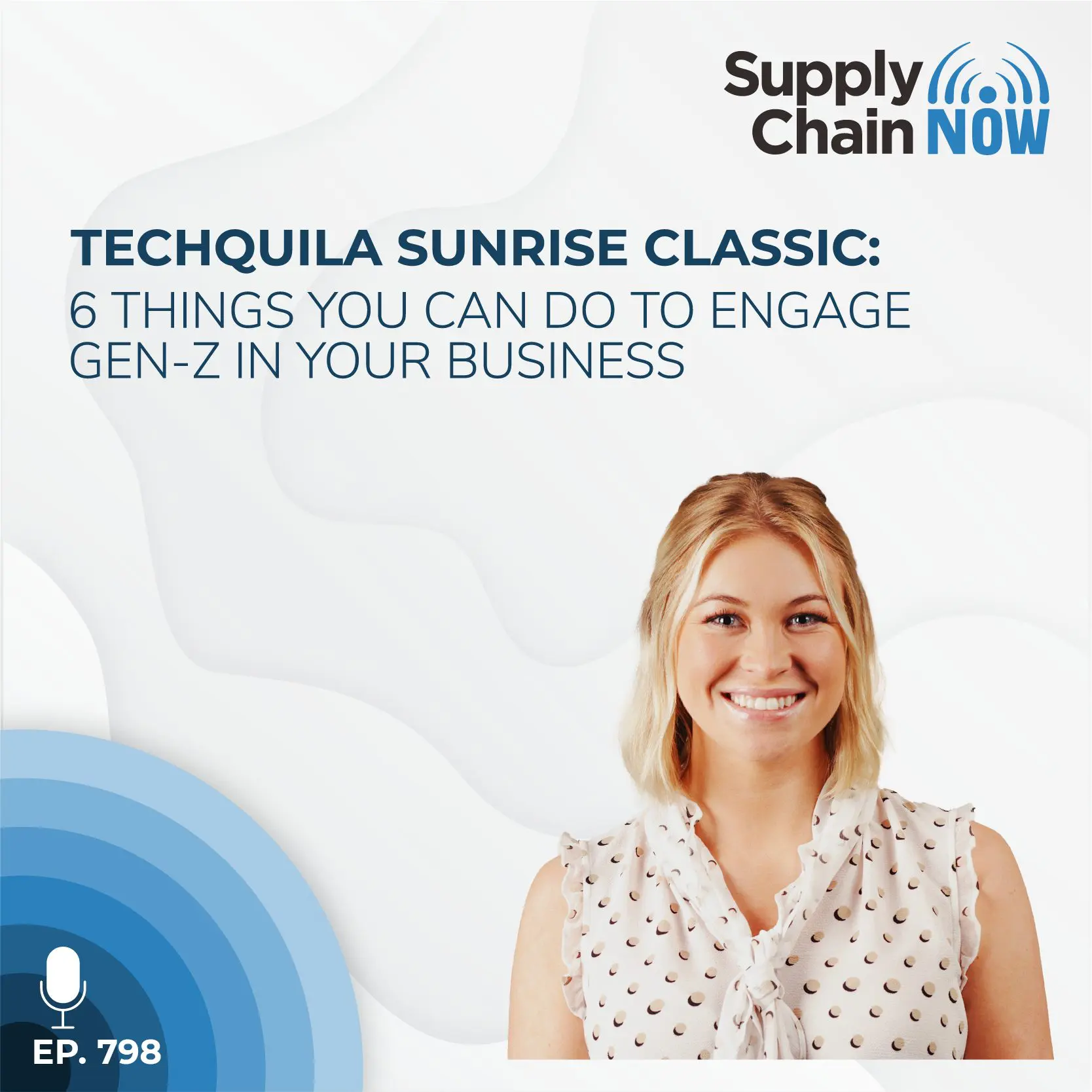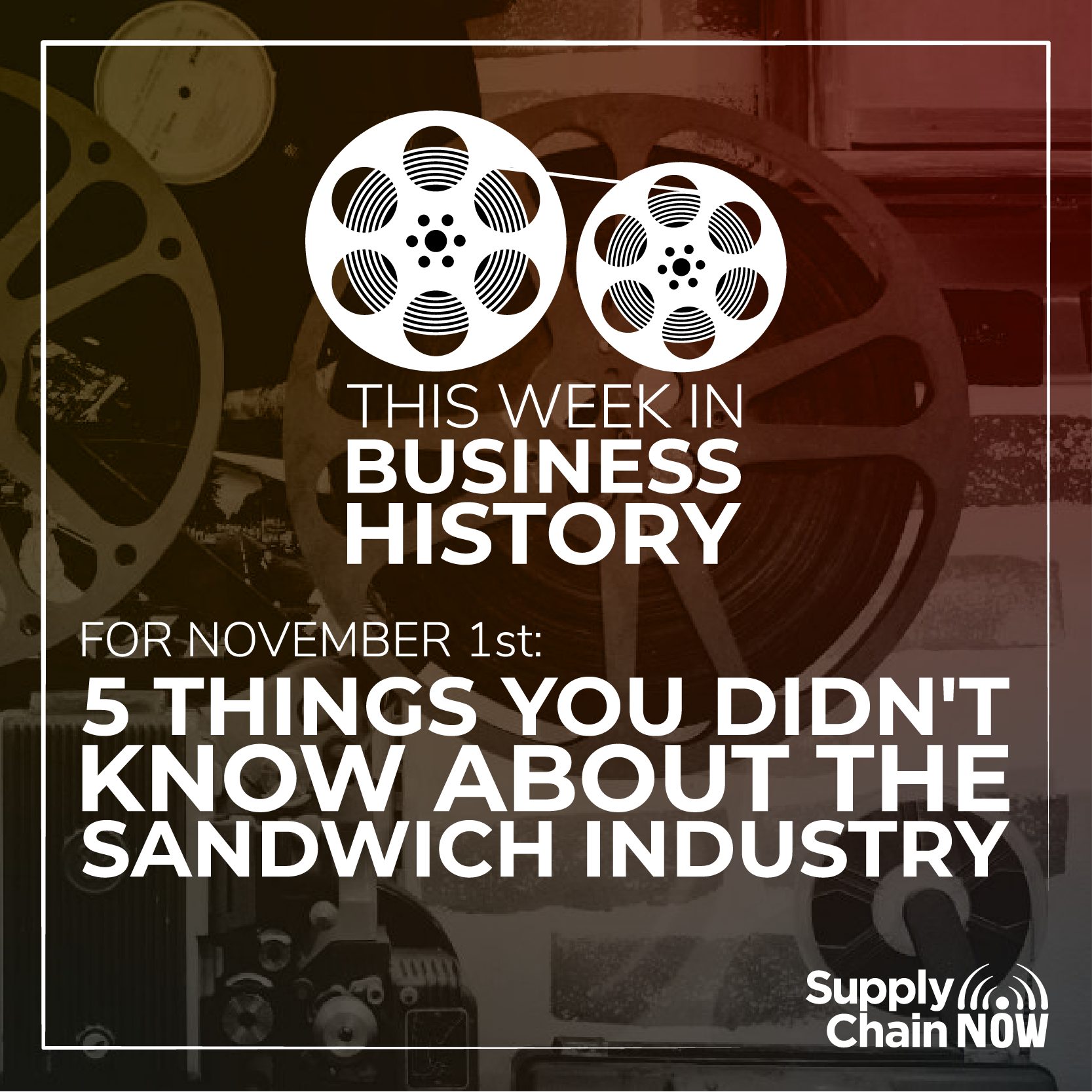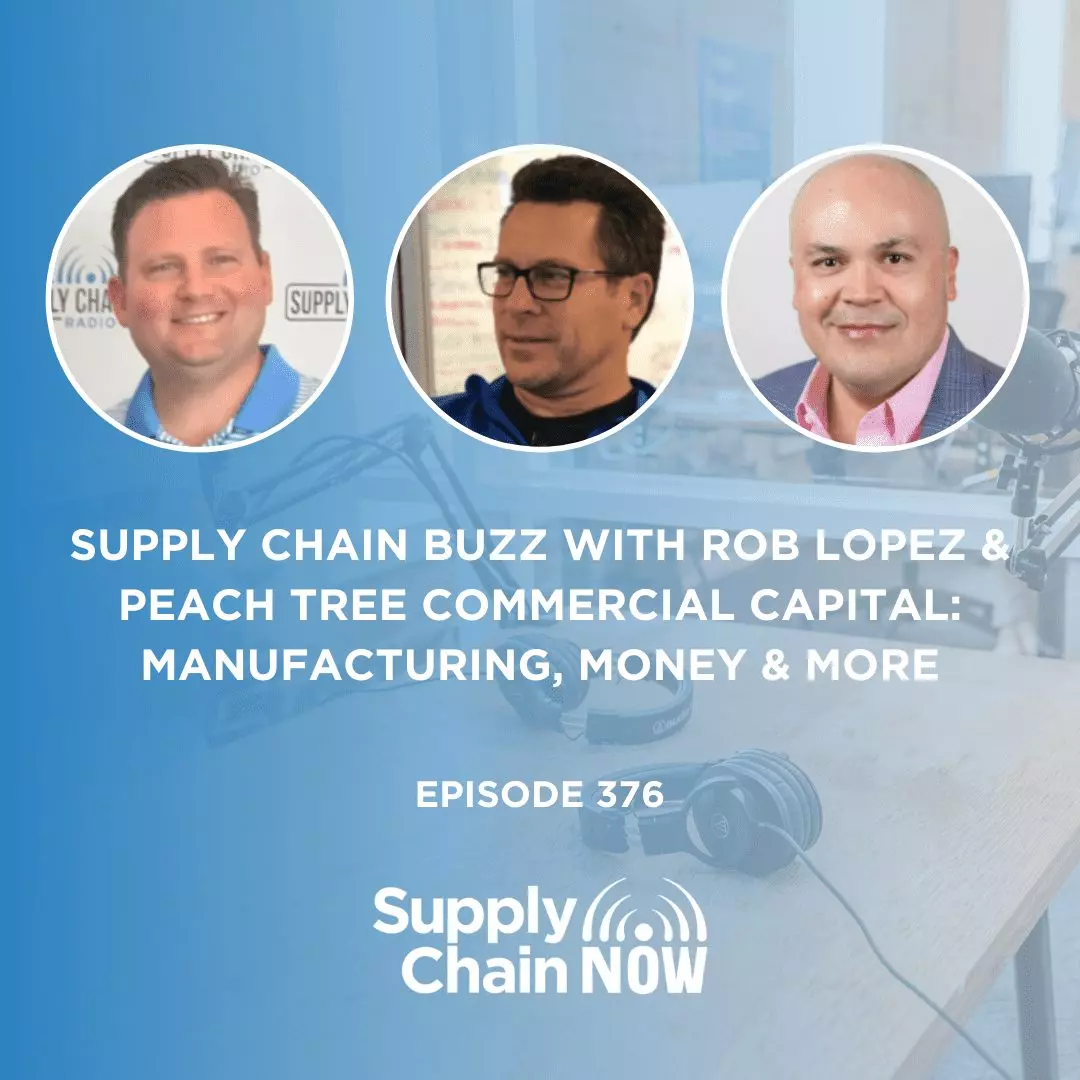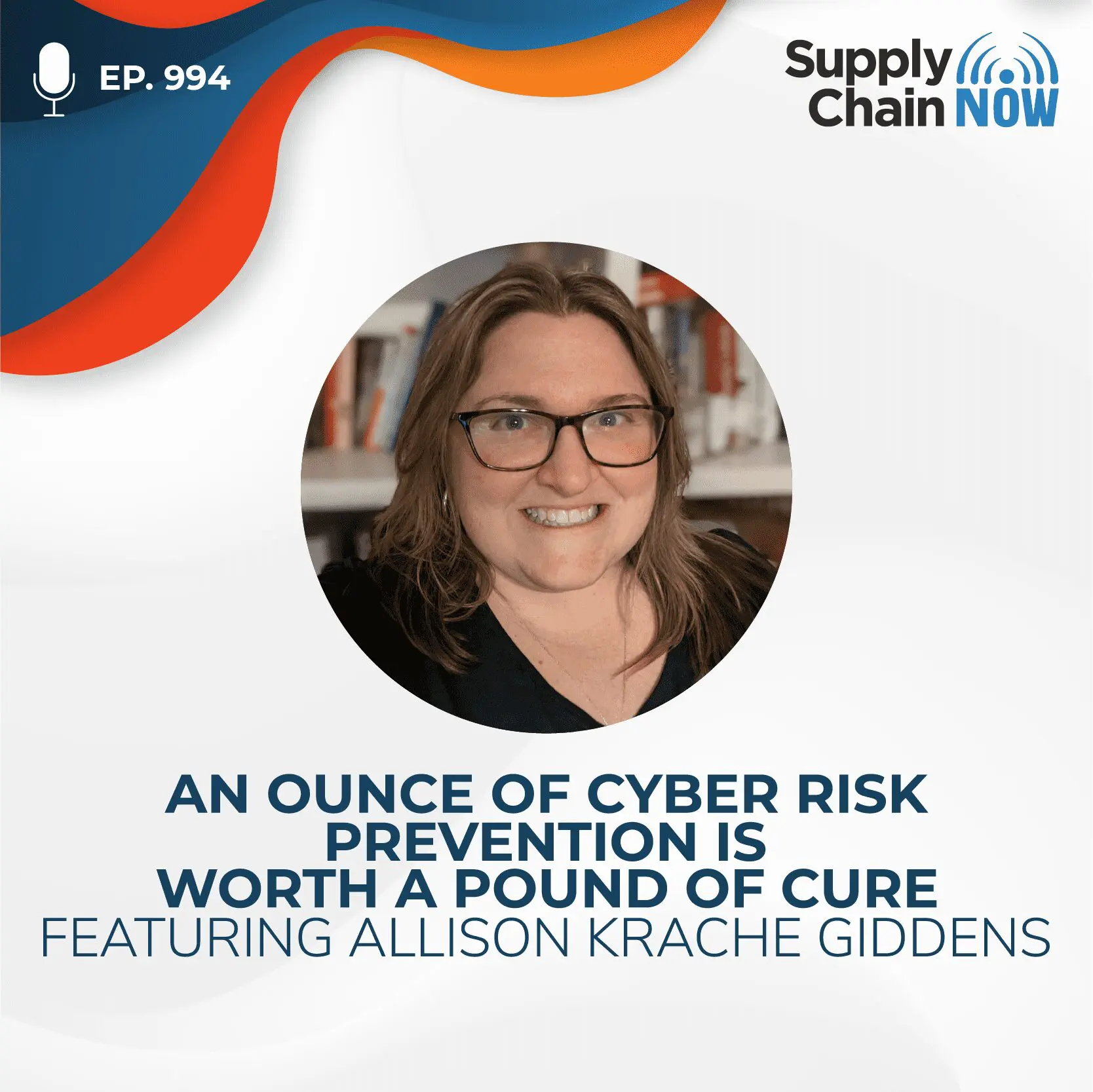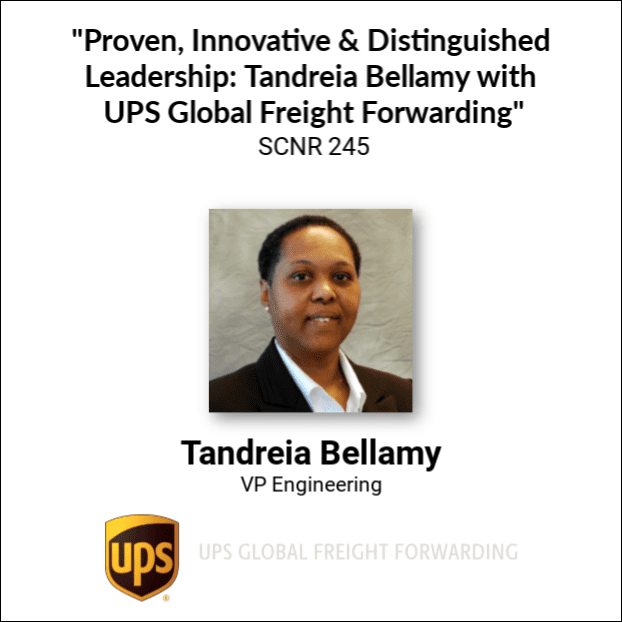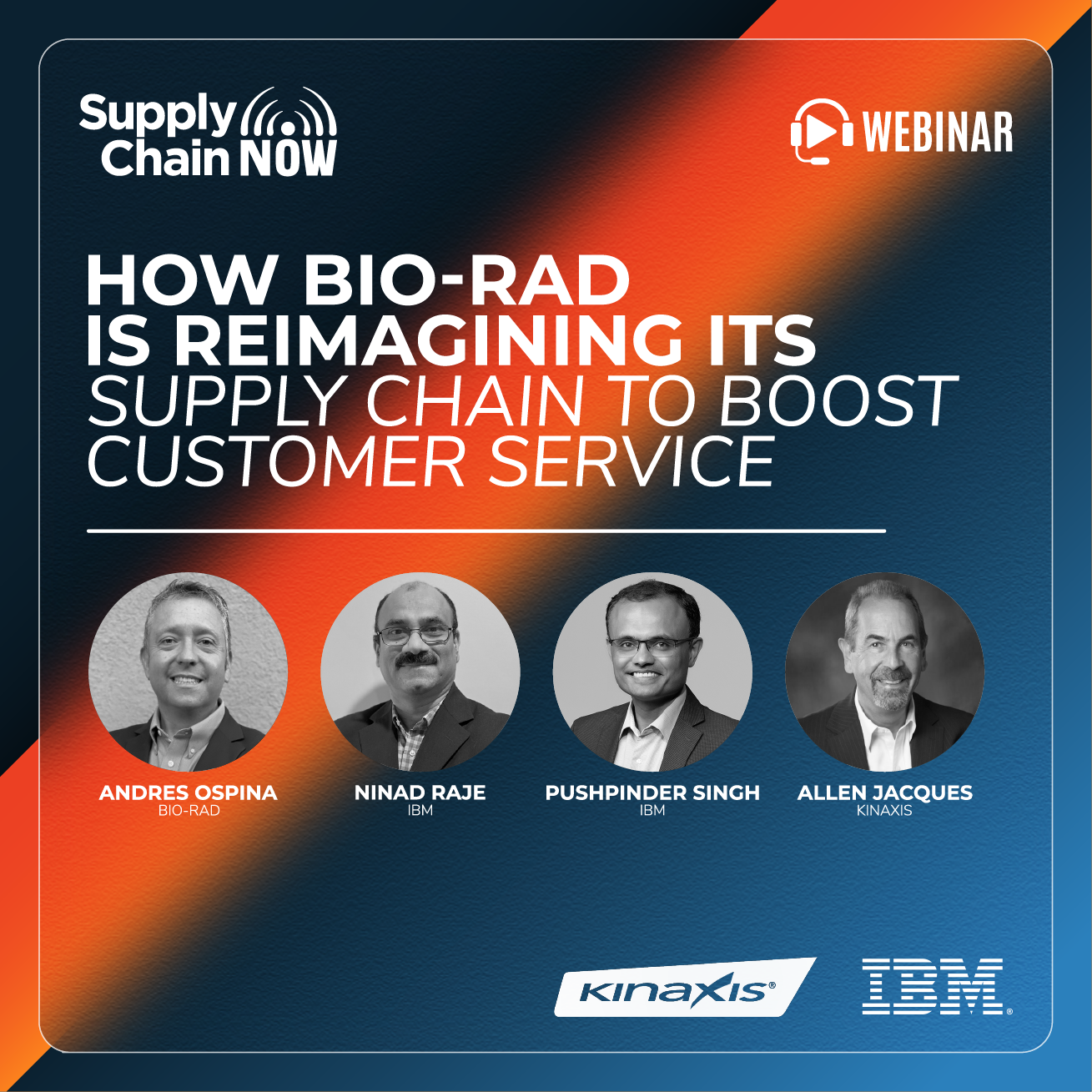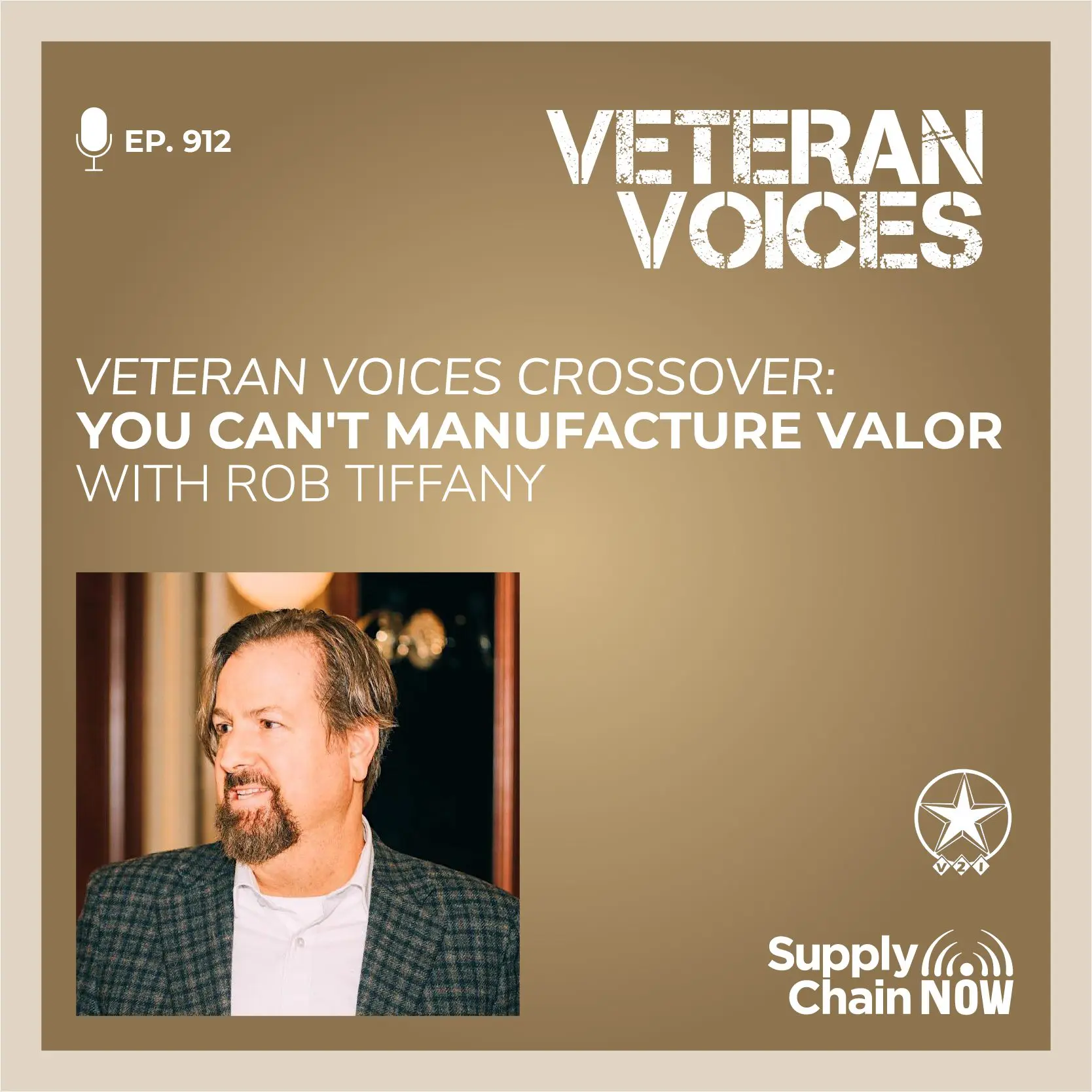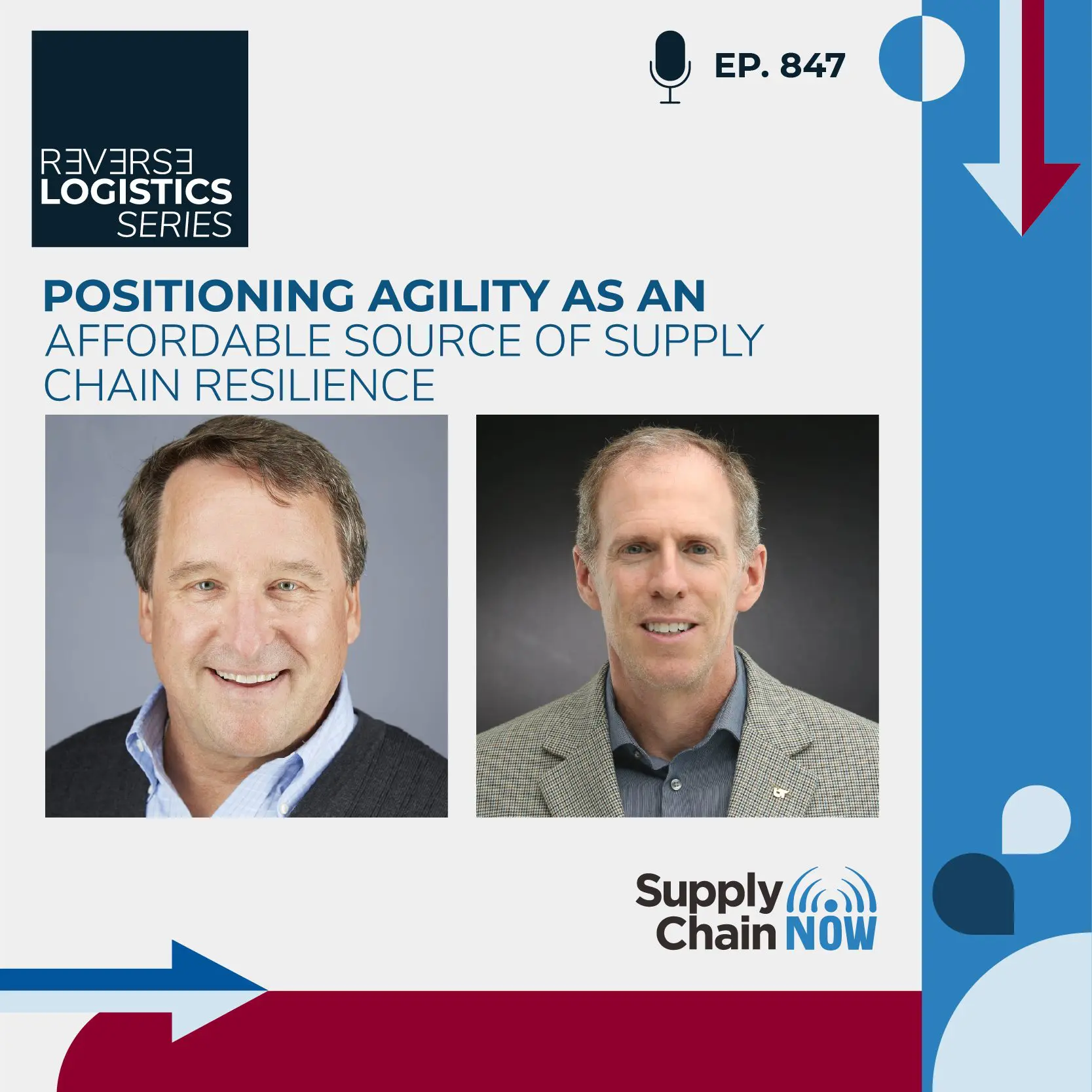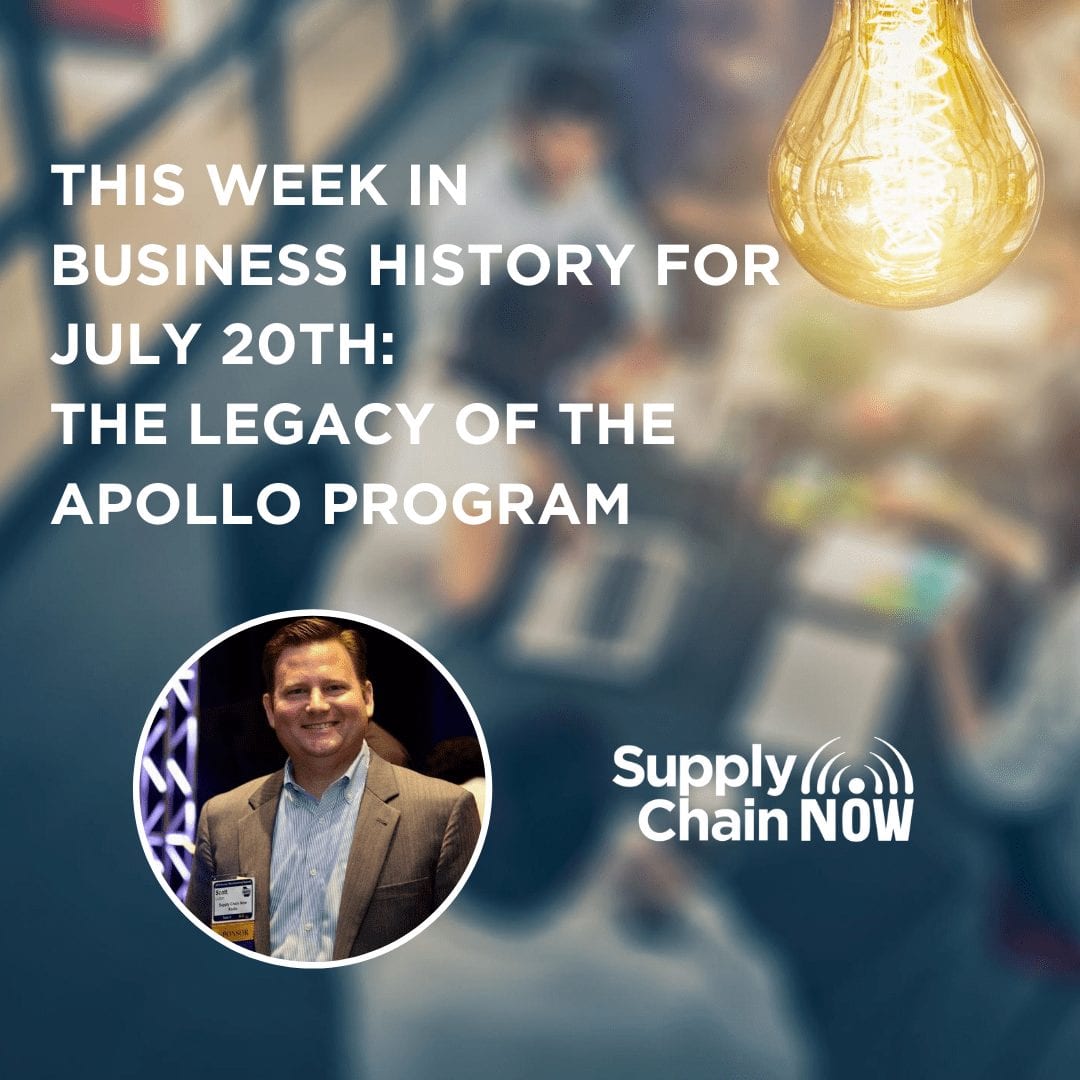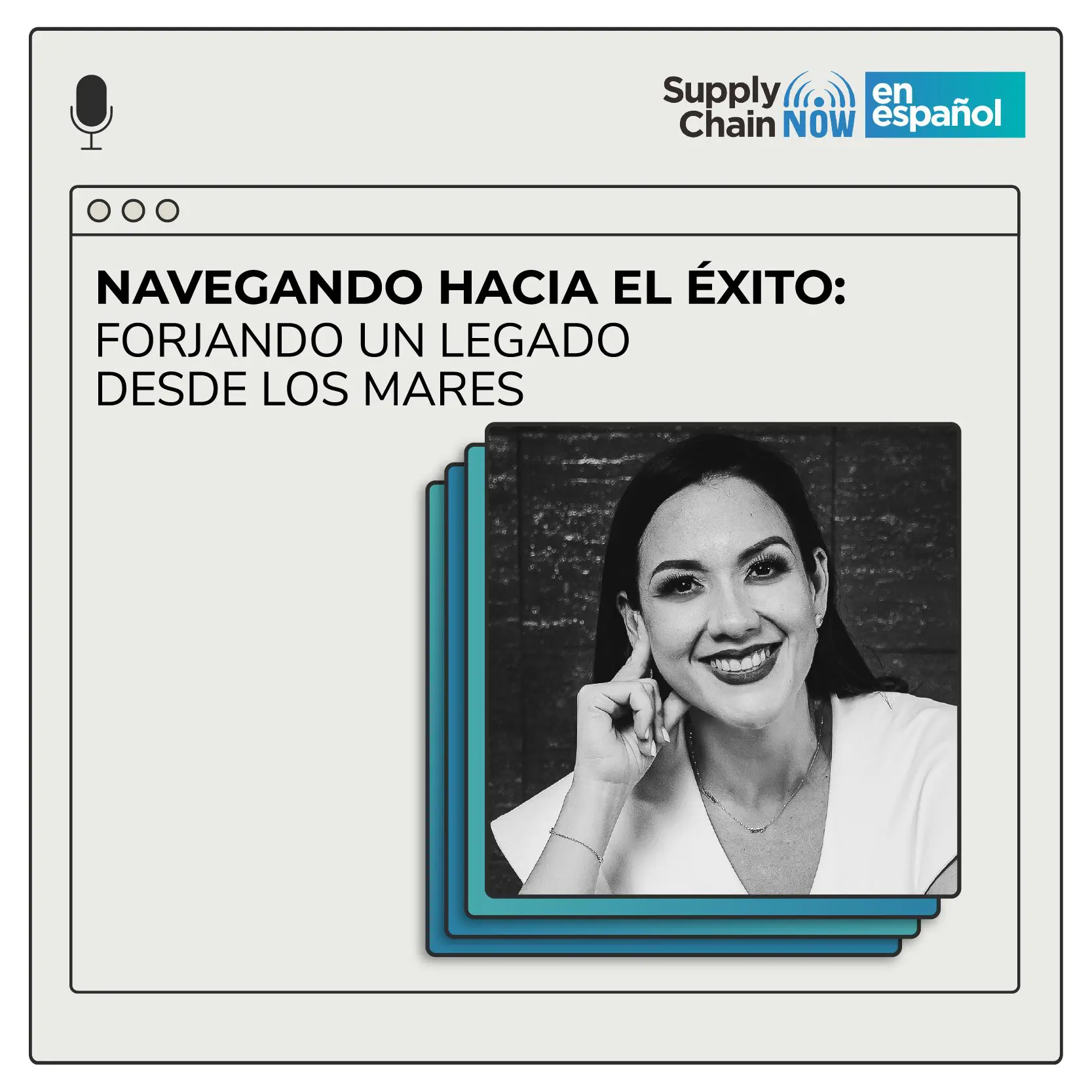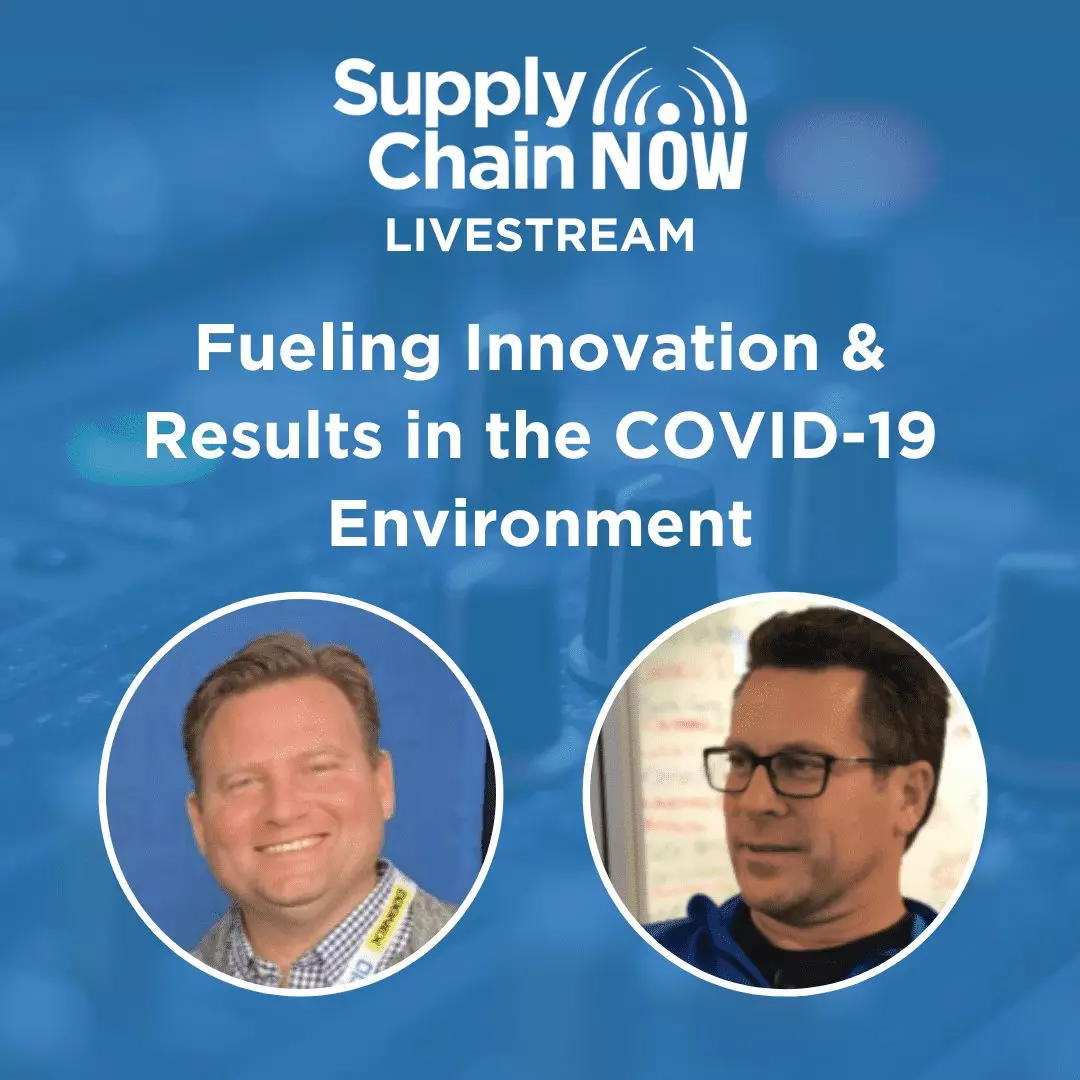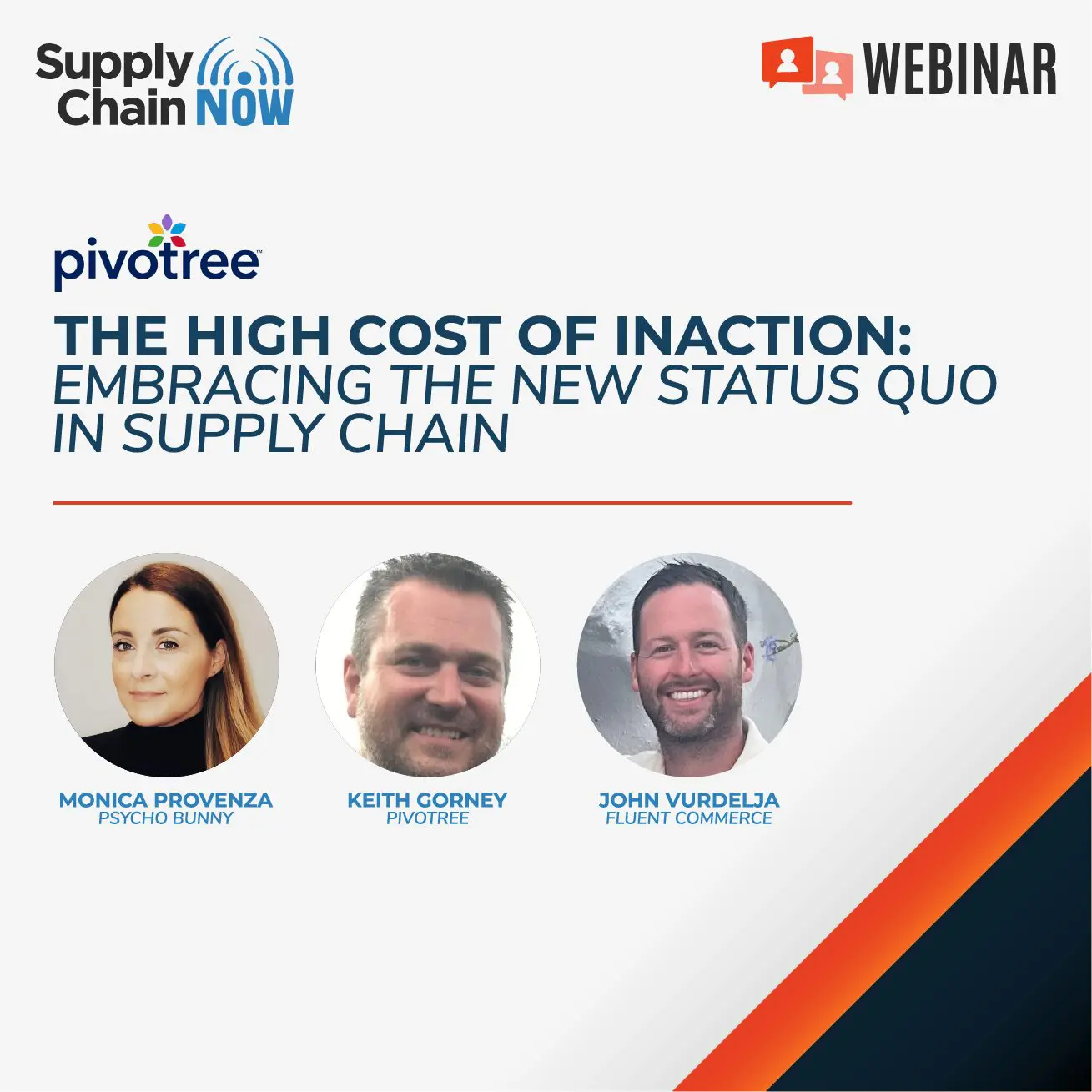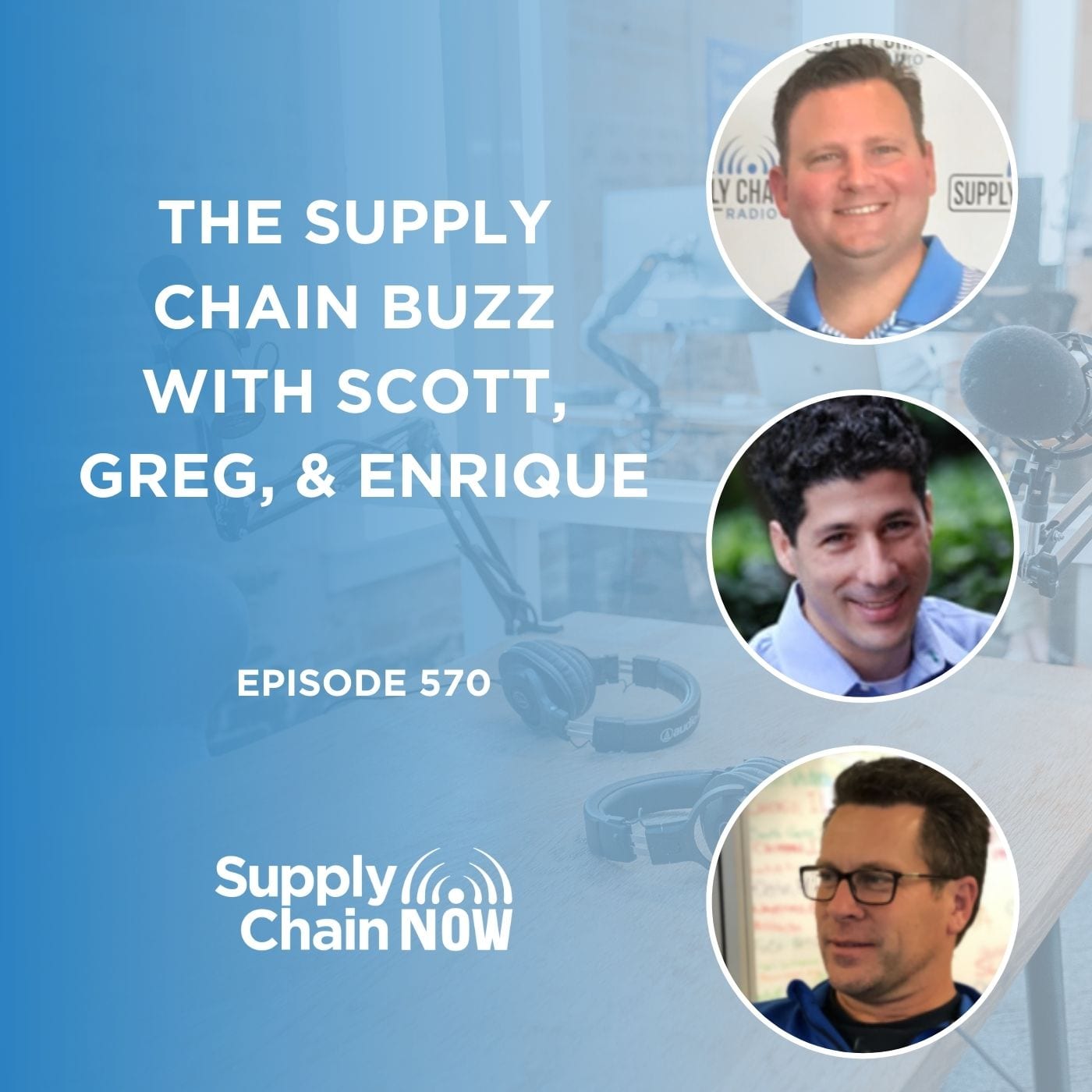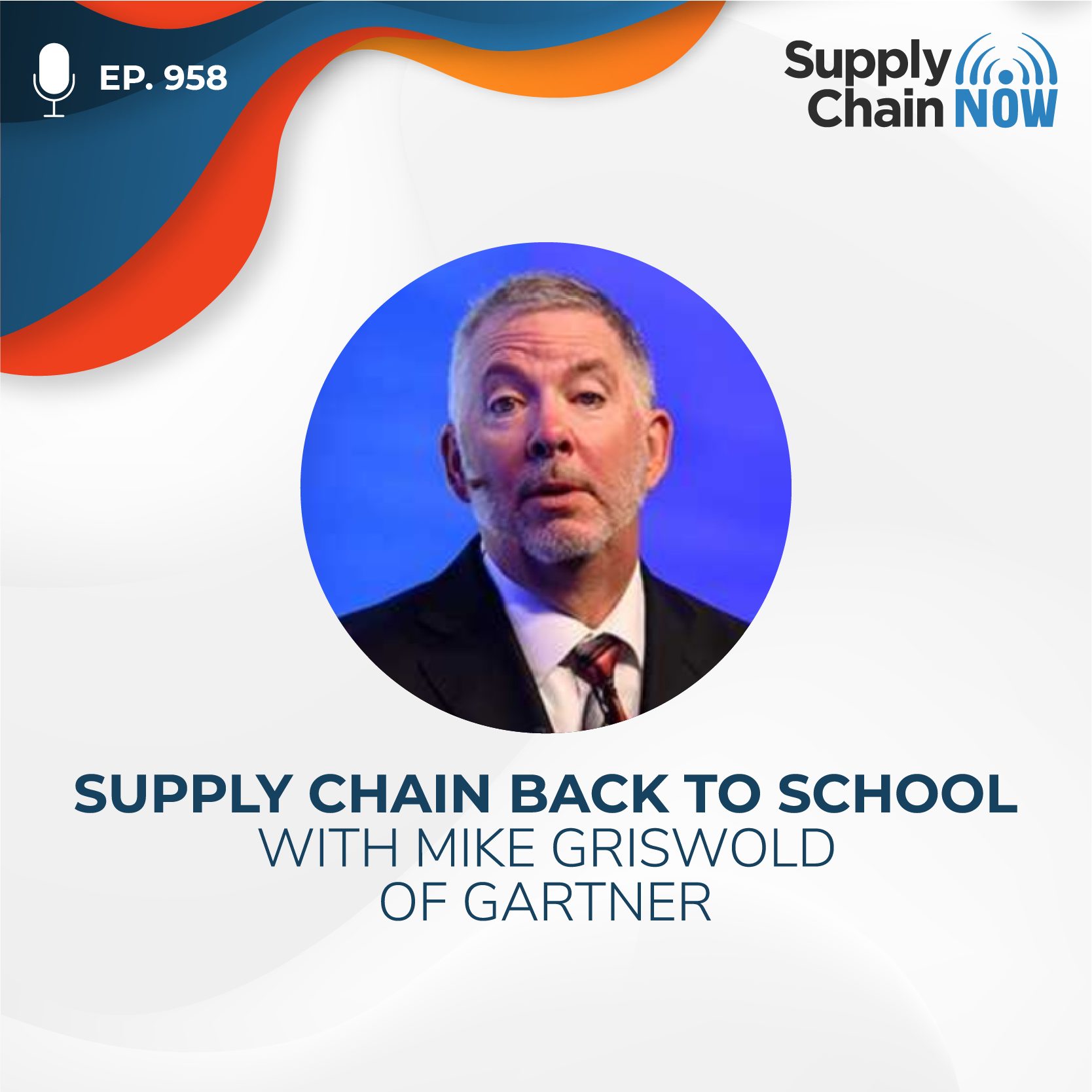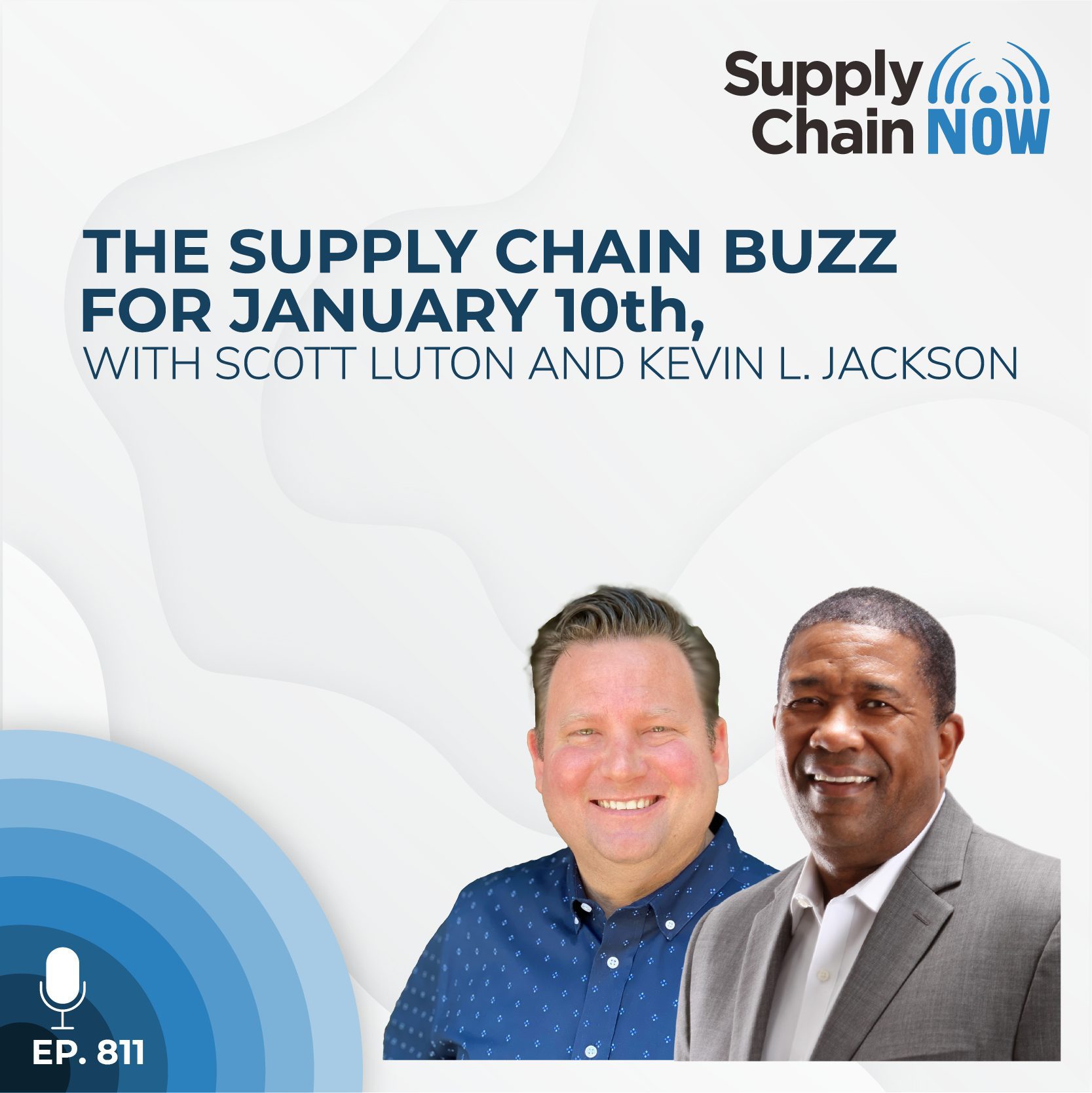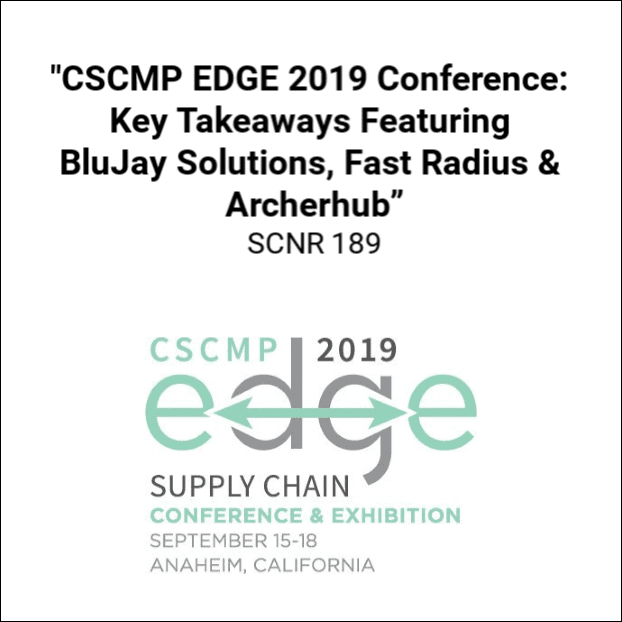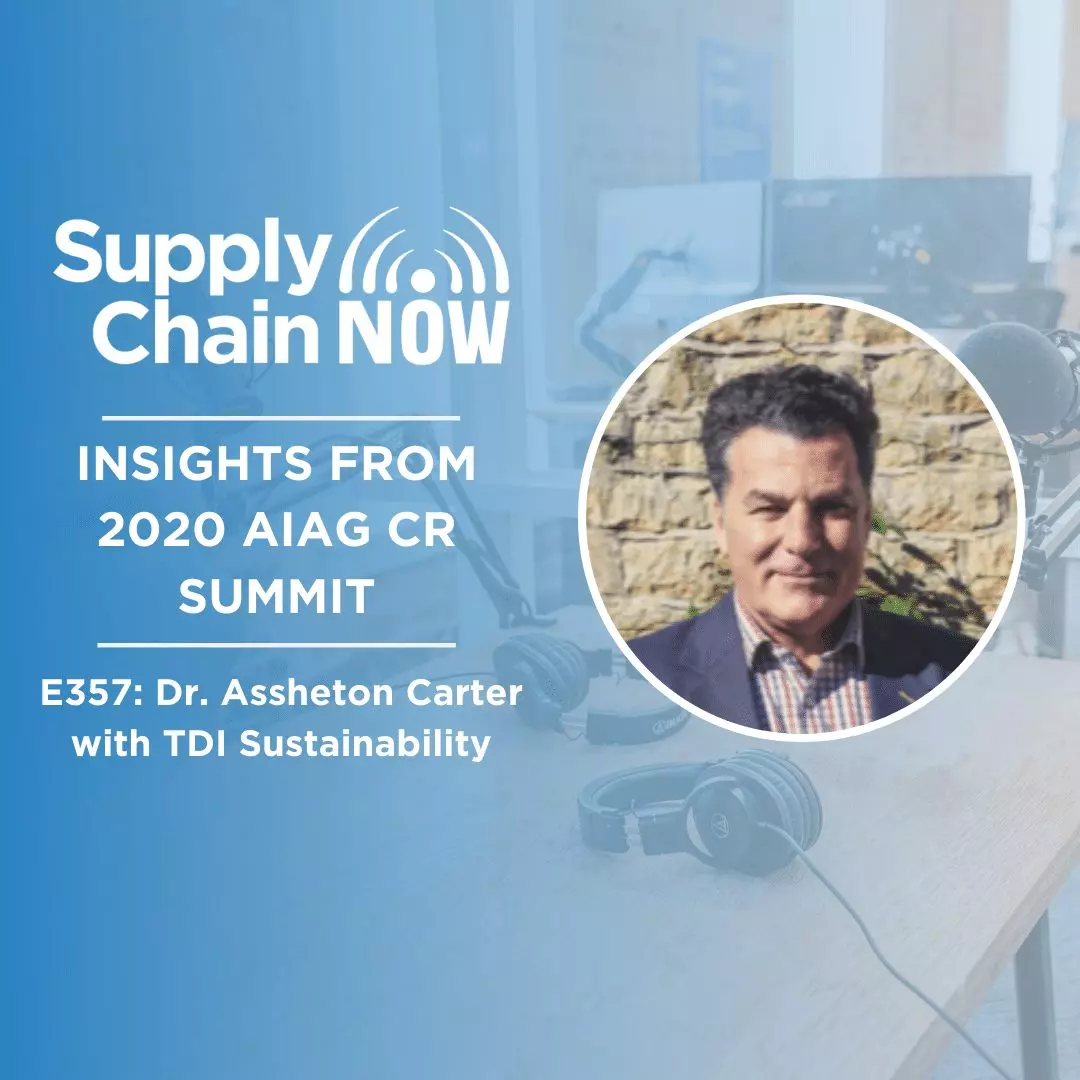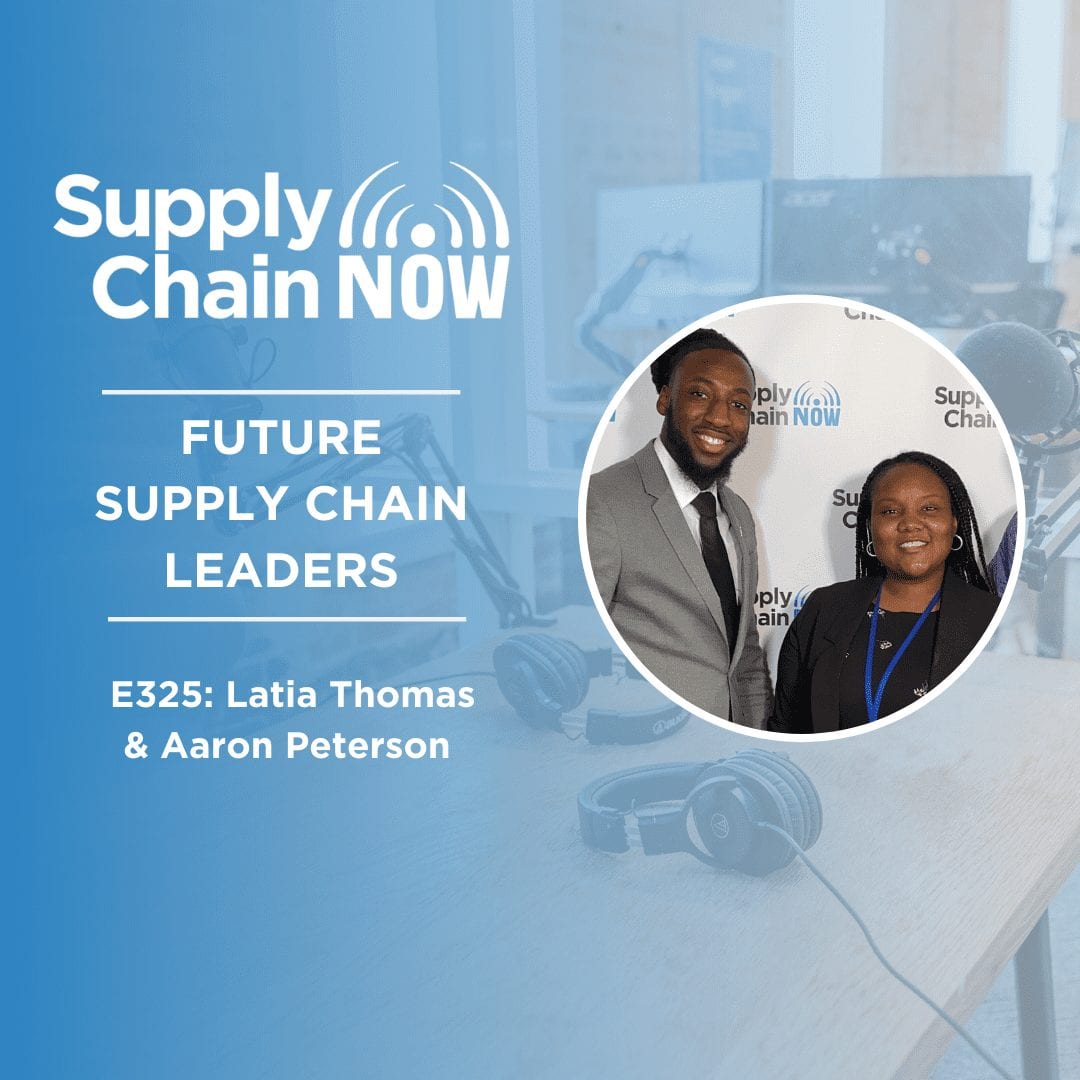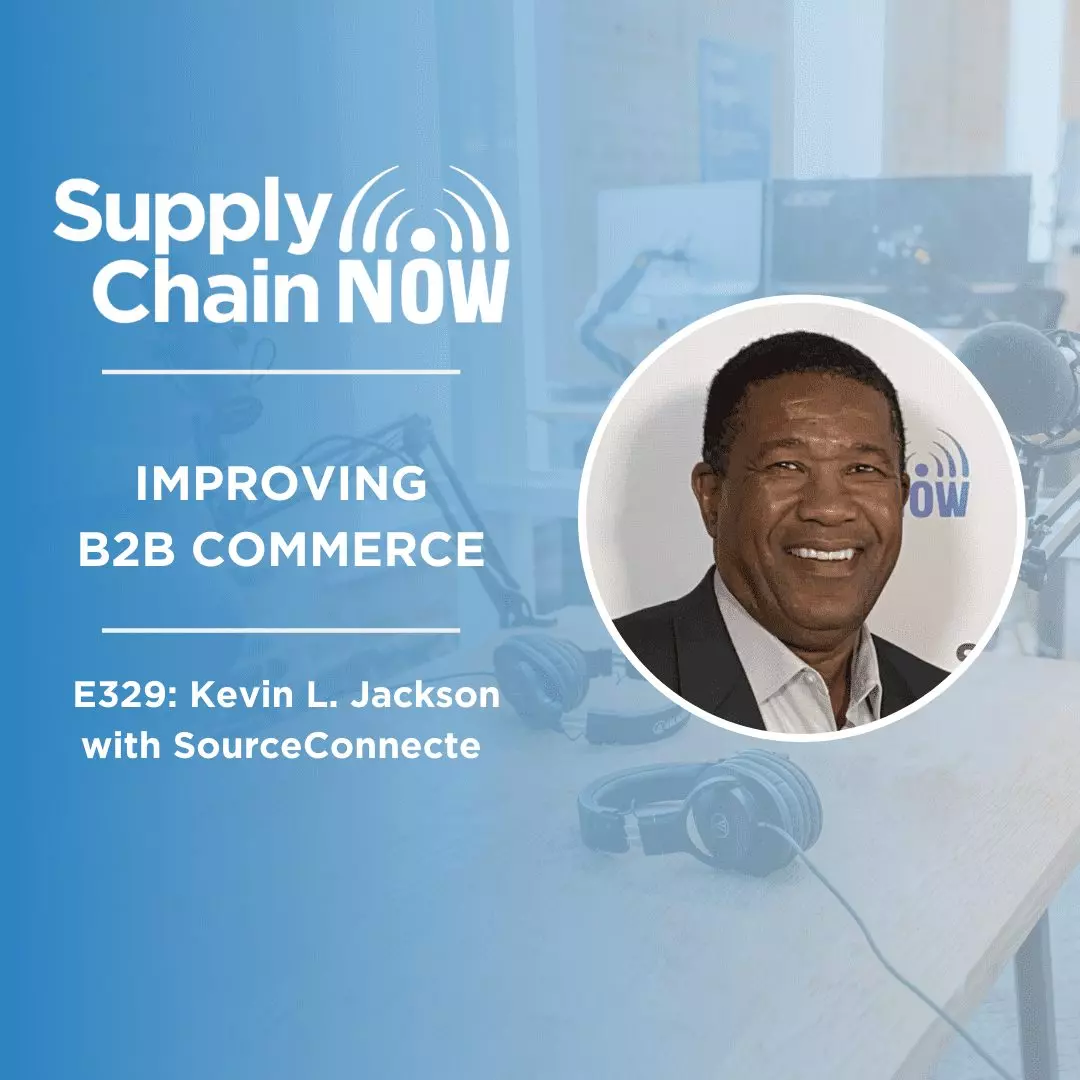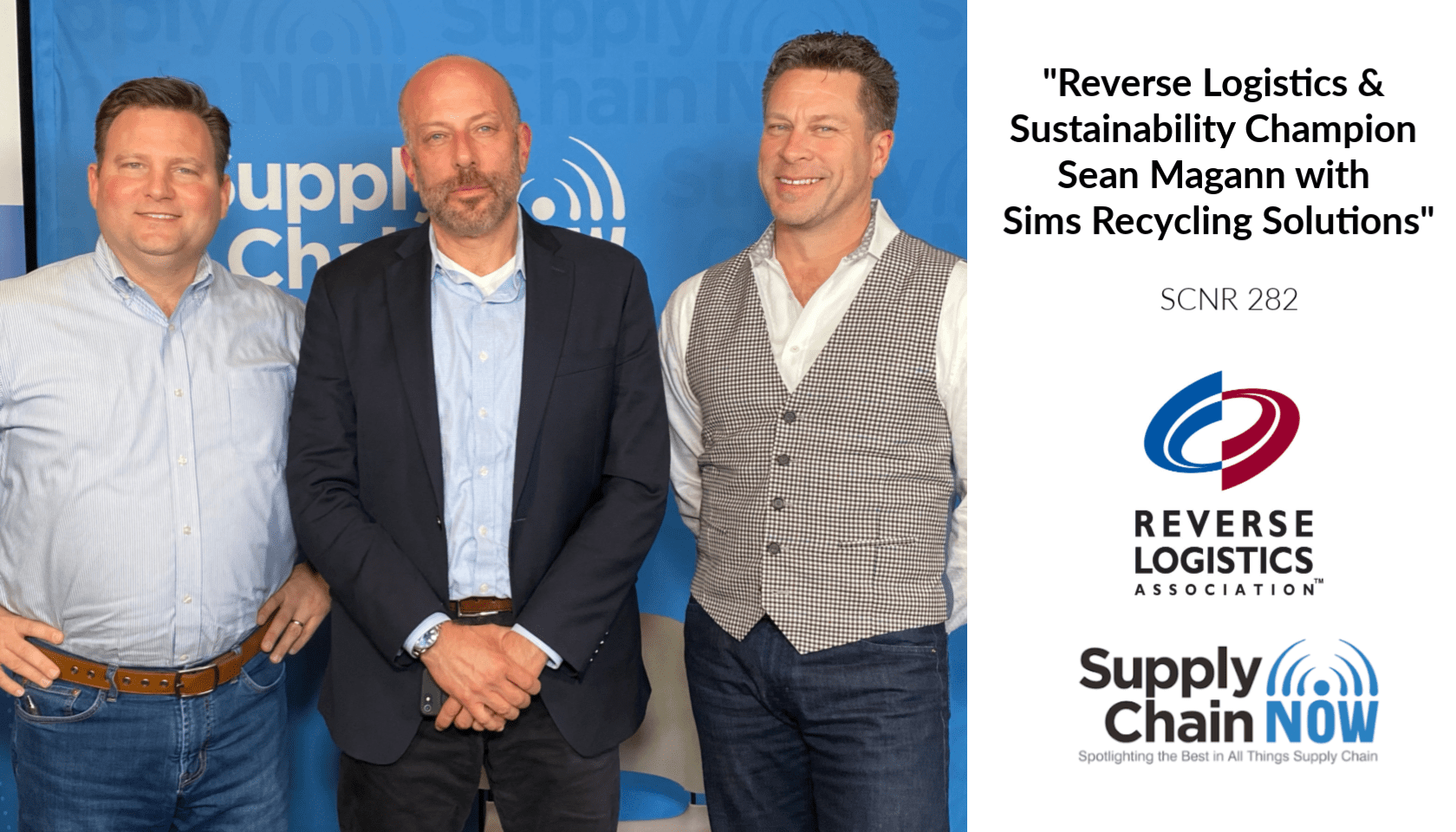
Episode Summary
Scott and Greg welcome Sean Magann to the Supply Chain Now booth at the RLA Conference & Expo in Las Vegas, NV.
Episode Transcript
[00:00:05] It’s time for Supply Chain Now Radio Broadcasting Life Supply chain capital of the country, Atlanta, Georgia. Supply Chain Now Radio spotlights the best in all things supply chain the people, the technology, the best practices and the critical issues of the day. And now here are your hosts.
[00:00:29] So good afternoon, Scott Luton here with you, Liveline Supply chain. Now welcome back to the show Today Show. We’re coming to you live from Las Vegas, home of the reverse Logistics Association Conference and Expo, which really has become the center of the universe for returns all things returns and reverse Logistics ton of thought leaders, including some drillers and some other construction, good people that are setting up a ton of booths in exhibition hall. We’ve got keynotes coming up. We’ve got a ton of networking opportunities. Tons of best practice sharing. Today’s episode is really important. Brought to you by Cap Gemini, global leader in consulting, technology, services and digital transformation. You can learn more at Cap Gemini dot com. Quick programing note you can find our podcasts wherever. Podcast from Spotify, Apple podcast, YouTube where it really wherever you podcast from. Be sure to subscribe. Still missing thing. Well, you may have heard him already chime in. He’s chomping at the bit today. Our fearless co-host Greg White Serial Supply chain, tech entrepreneur, chronic disruptor and trusted advisor. Greg, how you doing? I’m doing great. Thank you. It’s great to be here. It is outstanding to be here. And what is it? Unexpectedly cold week in Vegas, 40 degrees and windy.
[00:01:45] Yeah, it’s a little chilly. A little chilly here in Vegas. But you know what, Tony Sciarrotta? He’s going to heat things a nice you know. I’m telling you what they’re doing with RLA is it’s important. Yes. Tony’s a visionary. I mean, you know, it’s not just about what do we do when it comes back, it’s how do we keep it from coming back in the first place? That’s so important. And, you know, commerce is changing, you know. Fifty five percent of consumers say that they will return a product and prefer to do so in a physical location. You know, I think it’s great that we’re talking to Shawn, who we’re going to intro.
[00:02:21] I know I present road me some curveballs today. There you go, Greg White.
[00:02:28] But he I mentioned our featured guests here today. Shawn McGann, Sims recycling solution. Yes, thought leader in the space. Big supporter of the RLJ One of the top sponsors here that allows us to bring all these folks from across the world a reversal. Just six here that exchange best practices and ideas and solutions to old problems and new problems that you’re referring to in this retail supply chain and retail space that’s evolving by the minute. Right. Yeah. So good afternoon. Shawn.
[00:02:58] Hey, doing great. I really appreciate you guys taking the time to speak with me today.
[00:03:02] It’s exciting or exciting. You come well regard your ears may have been burning in recent days as we were kind of building our interview lineup. And Tony was talking about how good of a guess you’d be for the show. I appreciate. So we’re looking forward to Dove right in. And really, we’re fast ADRs, right? Yeah. No further do we’re organized. Do it because I’m jealous to hear about where you’re from and born and raised. And I think our listeners will kind of enjoy getting a sense of who you are, where you’re from, and you’ve got to give us the goods on your upbringing. So give us a few anecdotes on as Shawn grew up.
[00:03:36] You bet. Well, like born and raised in the San Francisco Bay Area in a town called Fremont. I went to school at UC Berkeley. I live currently in Pleasant Dan Solla. Oh, yeah. I live not too far from from where I grew up. Okay. I traveled the world for work, but the bear is a pretty, pretty cool place. It’s hard to to leave some antidotes about how I got into the business. Well, you talked about growing up.
[00:04:00] Yes. Yes. So I went. Can you give us a Goodsell net for you? What? It’s interesting. So I went to Catholic high school. Right. So where everything was very regimented, we wore uniforms. And then for college, I go to UC Berkeley, which is a school where some people didn’t even wear clothes. Right. So it was it was quite a shock. But you talk about a culture shock, but so. So that was always interest. Would you, major, in UC Berkeley? I was a history major and I got an MBA after. Really? I am. So. So is history reading about history? And is that part of a passion for you? Well, I wanted to go to law school. My original intent was to use it to go to law school. But I felt, you know, business was better. So I went and got an MBA instead. So but I’m still a big reader of history and I enjoy it. So.
[00:04:42] So San Francisco Bay Area is known for a variety of things food, wine, weather. What’s what is one thing that when you when you get back from your global trips abroad, LLC, you stay, must maybe live in airplanes sometime. What’s one thing that you always look for?
[00:04:59] Getting back home, just the weather. I mean, you just can’t beat it. I mean, it’s been cold this week, but it just so nice. I mean, we’re blessed to have. It’s not too hot. It’s not too cold weather. You just can’t beat it, you know? And the food where food is great. Yeah. The food is great. You bet. And because of the diversity, you can have anything you want. Yeah.
[00:05:17] And food for dinner and then for lunch the next day you can have Japanese food. I think it’s pretty diverse and it’s it’s pretty special.
[00:05:24] I love it. So, Greg, let’s shift gears and let’s talk with Sean about the company.
[00:05:30] Yeah. So can you tell us a little bit about what Sims Recycling does? I mean, how do you fit into what we’re talking about here? Jerai Schmidt at the RLA Convention.
[00:05:39] So everything that’s got an end, a useful life. At the end of the day, your phone, your computer, things in a data center, there’s gonna come a point where they just don’t have a useful life. And so what our company does is we take them and we try to repurpose it. Right, to resell it for Ted to have a useful life for something else. Or at the end of the day, we’ll recycling. So we’ll crush it up into little pieces. We’ll separate the plastics from the aluminum and then recycle each one of those components. So we’re we’re an environmental company. You know, we try to extend the useful life of things. But at the end of the day, somethings just are done. And yeah, they need to be recycled. And you don’t think about it, but what with what? The planned obsolescence of so many different devices. Right. Your phone. You’re getting a new phone every year. Yeah. Computers are turning over every three years. Your your box from your cable provider. You know, maybe every two years you get a new one, you get a new modem. There’s just so much out there. And again, it’s planned. It’s not happenstance. I mean, that’s a planned obsolescence of devices.
[00:06:35] And they have to go somewhere on the pace that technology is growing. Really no way to avoid it. Right.
[00:06:40] Well, you can’t. Right. Because, again, think about even if you looked at your phone from 7 years ago, it’s ridiculous. It’s small.
[00:06:46] I have looked at it recently. That’s right. Yeah, that’s right.
[00:06:53] What do you find? That one? The cool things that that we have observed. And frankly, I’ve been part of it. Right. As we’ve learned more and more about sustainability measures, about the importance of recycling. Of course, you know, recycling had a, you know, 70s, 80s and 90s. There was a lot of folks that kind of saw its importance in and engage in clean day and start doing it. It seems like there have been even heightened resurgence, especially in industry. You know, about recycling, about sustainability measures. What are you seeing some of that as you have conversations globally?
[00:07:27] Yeah, 100 percent, especially with the scarcity of some resources, some of the, um, the rare earth metals that are know electronics can’t just get them anywhere, right? That’s right. Scarcity factor. Consumers are asking for it. Right. Consumers are seeing, you know, plastics end up in the ocean and in landfills. And, you know, consumers are certainly starting to demand more recyclability. And we’re reverse Logistics fits. And it’s always the last mile for recycling. Right. Right now I’m in the business. Right. But I’ve got five cell phones in a drawer somewhere, as I’m sure everyone here at the conference has. So the challenge is to figure out how you get things that last mile from. From the consumer back into the river.
[00:08:05] Supply chain some that. How long have you all been active with the reverse Logistics SCAC.
[00:08:12] We started when I started with the company in 2012. So, yeah, so eight years.
[00:08:18] And it seems like we’ve seen Greg in in I haven’t Tony on the show and rubbing elbows with folks here that, you know, some of the world’s best companies that have incredible operations are still struggling with many of the basic challenges that recycling’s US and sustainability pose Ryder percent.
[00:08:38] Because what happened, especially on an international level, the. The effort to get something into a country picked Malaysia as an example. So you won’t open up a little shop at a consulting office in Malaysia. So you need to buy I.T. equipment. When you import the material into Malaysia, it’s a product. No problem. It goes on. On a manifest, it’s a bill. Elating. It’s a very simple endeavor, just like shipping something across the street. But in many countries, once that device is passed, its end a useful life. It’s a waste. And so the same discipline, the same effort that went to putting something in country. It’s completely different getting something out. And most companies don’t realize that. Malaysia as a specific example. You have to use a special hazardous waste carrier now. Right. Even though it looks the same. It smells the same. Right. I mean, that computer looks exactly the same. But because you’ve deemed it obsolete, obsolete, it’s now a waste. Now, a lot of companies don’t treat it as such. Well, they get caught. Maybe. Maybe not. Right. Buy up from it from a strictly technical standpoint. The big companies who have to play 100 percent by the rules will now have to treat that as a waste. And when you think about it, it’s not the when you’re opening up a shop, you’re opening up that new business. It’s really it’s really kind of sexy, right, because you’re trying to grow my business and everyone’s aligned. And there’s big margins, right? There’s there’s billions of dollars to buy I.T. exciting stuff. It is. Right, because that’s all about growth and market share, getting the stuff out. It’s not so sexy, but it’s just as important. And like I said, most companies aren’t experience. So not in the waste business, you know? Yeah. Miura an accounting firm. You’re not a waste handler, but now you’re having to deal with waste in Japan and Malaysia. Places like that.
[00:10:14] And who really wants to think about what happens when I’m done with this? Right. Right. So that’s a that’s a really good point. So if you think about the companies that you work with. So I always like to ask this question. What? What’s the problem that they often bring to you? Or what’s what’s a key word? If I if I’m a company and I’m going, I need a solution for this. What’s the words that are going through my mind?
[00:10:36] It’s a great question. How do we get rid of this stuff? Yeah. So that, you know. I mean, I’m not kidding. We work with a Fortune 38 bank. OK. This is a big company. And they said, well, we have some stuff. We have a data center in Japan. We’re going to decommission it. We need some you know, we want to get rid of it. Well, you can’t just get rid of it. Right. Because now it’s a waste. And the question we ask is, will be before we get started on the project. You tell me, what did you do before with that stuff? And the question is, there’s always a pregnant pause.
[00:11:03] Right. And first thing they’re going is, do I need to call a lawyer? Yeah, exactly right. I mean, some companies will be honest and say, I have no idea. Yeah. Companies will say it’s fine. Right. I’ve been married for 20 years. So I know when my wife says it’s fine, it means it’s not fine. Yeah. Yeah.
[00:11:18] So when a company says it’s fine, it means there’s something wrong. Right. And some companies to say, listen, we don’t want to talk about the past. We only want to move forward. The point being so big companies, they’ve been working in Rashi for many, many years and they don’t know how to get rid of their stuff in a compliant manner.
[00:11:32] But when you’re asking that question, you’re not trying to out him at all. You’re just trying to get a handle on how mature they’re they’re offloading process.
[00:11:41] Is that Scott Ausland Ryder? That’s exactly right. We’re just trying to establish a baseline, you know, and and we’ve gotten better to say, hey, whatever the answer is, it’s amnesty. Whatever you say, it’s OK. We just want to know how mature your program. Yeah. Sometimes we have to start from scratch. Sometimes we have to build upon something. But usually it’s starting from. From toward the scratch site.
[00:12:00] Less than zero spectrum’s, I’m sure. You betcha. I bet you have a recycling maturity step model.
[00:12:06] We do. Yeah. Really? I mean, it’s not defined. It’s not 100 percent. But you have these conversations say, you know, because there’s things like GDP. Right. There’s big data protection and such change. Or even if if your program was okay five years ago, it’s not anymore. Interesting to note on GDP, one of the biggest mistakes we see, it’s something called extra territorial scope. What does that mean?
[00:12:28] Are you guys familiar with it? No. A little bit. I’m not.
[00:12:31] So basically, folks think, well, it GDP bar, it’s it’s an EU piece of legislation. Right. And they think, well, you know, I’m not doing business in the Netherlands. So GDP doesn’t affect me. It’s not the case. GDP bar protects the individual. Right. So if you are from the Netherlands and I’m pointing that to. So I don’t need to if you’re from the Netherlands and you’re living in California. Technically, technically, you’re protected by GDP. So. So I’m a business in California, right? I’m the cable company. Right. And your data gets out and you’re a Dutch citizen pointing that against. I’m angry. You’re a good well. And I’m liable because my job. So it’s not the extraterritorial scope means it doesn’t matter where the incursion happened. It’s where the person who’s been harmed is from. That’s right. And so it’s a it’s it’s it’s really kind of it almost says any company of any size is going to have someone from the EU. Part of it. Right.
[00:13:27] Well, if you have a Web site, potentially, you have to potentially cover yourself. Yes. Literally, there are no boundaries. I mean, except in some extreme cases for someone to be able to get to your your site order or application. We had an application and we did. Business with Amazon, and they might have people from the EU working in the states 100 percent or people from the states working in the EU with people from the EU. So and and there there are some big obligations there and it’s not dissimilar with the with the kind of products, the the obsoleted products that you’re talking about. One hundred percent.
[00:14:02] So is is Sims recycling mostly focused on data and electronics and technology equipment? Yeah. Is that OK? Because I want to ask yet and you all might not be as impacted on the big change that China may, I think, in the beginning of 2018. Oh, yeah. No. OK. So where an end to give our audience. The three people that may not know when China decided to stop taking half of the world’s, I believe is no Harford. Or maybe bigger net waste, you know, and all it does, it didn’t have to be pure, you know, and whatever you want to send them. Right. That change dramatically to begin in 2018, right?
[00:14:44] It does. Yes, it did. It’s called different things, but it’s typically called the greensward. What China was tired of being the dumping ground of the world. Right. And so they severely limited what could be imported into China. And I’ve seen it. I’ve been to places like Gouldian China, right where it’ll break your heart. You see kids taking apart computers. And, um, you know, the quickest way to get gold off a circuit board is you can use acid and acid will feel stripped or sorry, not acid. Cyanide, nettle stripped the gold off. You precipitate the gold. So now you’ve got the gold. But what’s leftover cyanide? Well, where do you put it? You’d dump it in a river, right? It’s it’s not. I mean, this isn’t a fear factory. This is re-write. And so the greensward was a reaction to that. Now, the problem is, is it was it overbroad? It could be. It could be. Right, because there’s problem there’s a lot of legitimate recyclers in China. But unfortunately, you know, some of the matear that would go back and forth kind of got caught up in this Greene sort. And so. Yeah, so it’s it’s impacted the whole industry.
[00:15:43] Well, one of the questions I know Greg like’s ask is, is what’s the why? Well, you just answered that in a very stark terms. Yes. That’s the what’s the why.
[00:15:53] Yeah. Yeah. I mean it’s not about just making good use of these materials. It’s it’s about assuring that those materials don’t turn into a detriment for society.
[00:16:05] One hundred percent. And we have a responsibility. We’re the world’s richest country. And for us to have these high tech products that we all spend so much money on and then did not have the infrastructure or the will to pay for it and dump that on people that don’t have a tenth of what we have. It’s I think it’s irresponsible. That’s why we do what we do.
[00:16:24] So I think what’s also might be helpful context for our listeners that may not be involved in the in this sort of industry. I’m saying use cases since China made this this this shift. Greene sort of thing is what you call the. So two years and some change ago cities here in the states, big cities that used to, you know, just prior to this change would send their way somewhere and get paid, you know, not a ton of money, but. But you get paid per metric ton. Right. And then China made that change. And then for many of these cities, they went from getting money per metric ton to having to pay to get someone to take it. Correct. Right. And some cities that couldn’t afford it over the publication of it had this one story of of a major city here in the states. Rather than paying a third party, they just burn everything. And out of where that stands. But this is a huge challenge. It’s a huge challenge.
[00:17:26] And it’s a challenge I think we can meet, though. Right. I think the biggest problem I see right now with the Greene sword and also with some of the, um, the trade wars going on with the current administration is the uncertainty. I think once folks know what can go to China, what can’t, then you can build up the infrastructure here to recycling. But because there’s still a bit of uncertainty on how it’s gonna be applied, there’s still a reluctance for someone to say, hey, we’re going to spend a hundred million dollars doing this, because if the floodgates open again and China. Well, your investment. But but that’s one of the things that our parent company, Sim’s Metals. And what we do is we’re not waiting. We’re saying, listen, let’s get to the challenge. Let’s spend the money on capital equipment to make sure that this stuff is highly recyclable, because, again, it still can go to Southeast Asia, to China. It just has to be in a clean commodity form. All right. So it’s incumbent upon us to use technology to create clean aluminum, clean plastics, et cetera.
[00:18:20] So are you seeing a big upturn in companies seeking your kind of services? I mean, the awareness of the consumer is so much higher than it used to be. Right. And I think that’s a relatively new thing. Have you seen any kind of changes other than legal and and the disposition of these products? Have you seen any greater demand? It’s it’s.
[00:18:42] Better, but it’s still not to where it should be, there’s still a lot of leakage because if it doesn’t go to China now, it’s going to go to, um, to Africa. Right. So there’s always somewhere to send it. So unfortunately, especially in the U.S., it’s not necessarily illegal to export the material. Right. So it’s when you go get it in the. Exactly. So there’s still a lot of leakage as far as I’m concerned. So we’ve seen some you know, this is where industry has been great. Like we see our enterprise customers willing to to spend the money, take the care to do it. We still don’t see that in the consumer space. And people just tend to want it to just go away. And so. So to answer your question, yes, we definitely have seen an increase, but not as much as I would have liked.
[00:19:24] So consumers are putting pressure on the supply chain retailers and distributors and manufacturers to clean up their act. I think is what you’re saying, but not sort of following through on that themselves. Is that a fair estimation? I think that’s very fair. Isn’t that ironic?
[00:19:41] It’s a rough week. So we were in in Shanghai two years ago with with Samsung. Hope they don’t mind me saying this and that. And the fella said dumb, you know. Of the 18 attributes of a cell phone, recyclability was number 17. Right. And so if you’re the manufacturer, you can’t blame them. They need. Their job is to sell more stuff. Yeah. And I get it as a capitaland straight. So until consumers vote with their dollars and say, hey, I’m not going to buy that phone because this one because a competitor is highly more recycled, is more recyclable. It’s not going to change. So consumers have to drive it.
[00:20:14] So, you know, we had a ton of Schroder on the show with Jack Allen with Cisco Jerai. And one of the things we talked about was design for Circuit or Concerta. Right. Which is what you’re really implying. And speaking to it is fascinating because to your point, Greg, consumers are holding that they want more transparency. They want to see more more sustainability. But what are we doing as consumers? Right. And what the first thing I think about is because I had my own you know, we all have our personal journey. I didn’t realize that, you know, glass wasn’t as recyclable or it isn’t in LA local area. Now, some of the things you can’t put in a recycling because it’ll contaminate all the good stuff you put in your recycling bin. I mean, this is maybe I’m a little bit thick, thick headed, but I didn’t realize that five years ago.
[00:21:03] We just think it just goes since the cement places everything. You know, I think a bottle water, right when I grew up, you know, I’m a little older than you guys. I think I drank out of a frickin hose. Right. And so far, I think I’m okay. Right. You’re not that much. But but now we drink bottled water, right? Yeah.
[00:21:19] And we happened to live in a country to where we were lucky to have clean water. But everybody drinks bottled water, which is terrible environmentally. Right. And it just in and I do it, too. I’m in the business. Right. So until we start to and you start to see a shift 7 to square port, I think they’ve banned it. And now we see aluminum bottles, which is better than plastic. But again, it’s consumer behavior. We have to demand that type of stuff. And the manufacturers will follow.
[00:21:46] Okay. So before we go broader, I kind of get your here. What keeps you up at night, kind of in the broader sense across in an supply chain industry. So v._i._p global sales and marketing with Sims Recycling Solutions, you kind of think you have a good picture. I can see you having these conversations globally, but where else do you spend your time that will making assumptions? Where do you spend your time in your old suite?
[00:22:12] So not only do I manage all the marketing for the company, I manage the entire global sales force. But I also spend a fair bit of time on managing a network, not me person, but my team managing a network of subcontractors. Just because what we talked about earlier, the transboundary moving this material can be really, really tricky. So rather than move something from, say, France to Italy or France to Germany, sometimes it’s easier just to find a subcontractor that didn’t approve subcontractor that can process that material in country. So we manage a whole network of folks that can do that locally. And again in the states were spoiled. Right, because it’s so big and shipping. Right. In California and Nevada. No problem. Not not so even even shipping within some states, sorry, in some provinces can be tricky in some places. So to try to keep things in country or in province is a big part of what we do.
[00:23:05] Mm hmm. Interesting. It isn’t that it makes them much. I don’t gather that prior to coming over the interview, but it makes so much sense. And, you know, means in here increased capacity and capabilities and ultimately more powerful solutions for the folks, your customers that you serve you better. Right. Okay. So, Greg, on broader on know, we’re always curious about what we’re keeping our finger on the pulse.
[00:23:31] Yeah. So this is where we ask you to break out your crystal ball. Right. Let’s say it doesn’t even have to be about reverse Logistics or recycling or anything, but. Think about or share with us some of the things you see that are improving or need to be improved in in Supply chain today. And you know, whether it’s something that’s happening now, you’ve seen in the past you’d like to see in the future you see coming in the future to share something like that.
[00:24:00] The big change we see and it’s it’s you know, I’m not the first guy to say this is the hyperscale data centers. It it’s a game changer.
[00:24:08] I mean, so the amount of data out there is there and it’s measured in exabytes and I’m not even sure what the heck. Exabyte is really, really big. It’s a lot. Right. Yeah, right. And and so there’s so.
[00:24:20] And it’s not only there’s more data. It’s the redundancy of data. So there’s a lot of data out there. So your picture of of your vacation in Florida, it stored dozens of times for redundancy. So it’s not that there’s more data. It’s the fact that it’s been, like I said, redundantly story. Yeah. And so it’s really it’s changed our business where we see more and more material from the data center space, so less and less from the client side. So I was gonna pull up my cell phone. Yeah. So less and less from. Uh-Huh. What’s he doing with it. So it’s a bolt so less and less stuff from the laptops. You know, the turn rate on those are slower because a lot of the heavy computing now is done in the data center side. And just think about that. Think about the old you’re at work. And we would get our I.T. guy would send out a note, said, hey, there’s a virus going around. Need to update your software. Well, I’m at lunch or I’m busy. And so maybe two hours later I get to it and I and I and I upload it. And the whole span from when he discovered it to when I updated my system is four hours. That’s an eternity now. Yes. Right. In the data center space, there’s A.I. It will recognize. Right? It’ll recognize the malware. And before I even know about it, it’s already fixed. Yeah. Right. It’s instantaneous. So the data center space will be huge. And we see it like that. The amount of volume we see coming from data centers harddrives is amazing.
[00:25:43] So fascinating story. Roger Staubach. Yes. Quarterback for Cowboys. Thank you. Cowboys. Heisman Trophy winner.
[00:25:50] He is a major has been a major player in the development of these facilities. And they are massive and they are buying massive amounts of real estate to do that. And it is because of this proliferation of what we call the cloud. And I think everybody understands what the cloud is. It’s a bunch of big computers out and out in buildings elsewhere rather than having to store everything on years. Right. And it does. I could see where it would create this proliferation of products that you guys deal with on a day to day basis.
[00:26:19] It’s a game changer. And again, if you were a company before, you had to have your own I.T. department. But now the scalability of the cloud is having your own data center may be like having your own power company in the back of your facility. Right. Leave it to the big boys. Right. They’ve got the scale to do it. And you just paid by the drink. You know, if you need so much storage space because you’re busy around Christmas, you buy that. And then in the summer where you don’t need as much, it’s 100 percent scalable, you know, which is like what?
[00:26:47] That’s how we like many of the UPS in this economy. Back then, just in time as we needed to. Okay. So let’s shift gears as we can start to wrap up this interview. We’re talking with Sean McGann with Sims Recycling Solutions, V.P., Global SALES and Marketing. I was a big investment, y’all. You’ll have here at the early conference and expo. You’ll see a lot of value. You’ve got a team here. Not sure if you’re speaking one of the breakout sessions, but I’ve been involved for quite some time. What’s the rate in today’s technology air where we’re connecting digitally a number, thousands of ways, driving some of the challenges that you already spends looking to? Why is it so important to get out and shake hands and and and meet people and have these conversations that would be here over the next two days because it’s a collective problem are only going to have we’re only going to be able to solve it collectively.
[00:27:34] I know that sounds cliche, but it’s true. We’re at the back end, right? Recycling the material. And we have to figure out a way that last mile that we talked about and it’s not easy, right? Because again, when you’re shipping a full pallet of material, right. From the manufacturing plant in China to the U.S., it’s EFT economize. We could sign a pallet at shrink-wrapped. It’s highly efficient. But taking that stuff back from your house and from your house, it’s especially from his specialty.
[00:28:01] But it’s a whole different ballgame. It’s a whole different ballgame. And so no one’s figured out how to do that. No one’s cracked the code. We call it the even even the Zappos problem. Right. You buy five pairs of shoes, right. And you return Court Harvath. Yeah, exactly right. I get it. I’m not being critical, but that’s that’s new. That didn’t exist years ago. And nobody has figured out how to fix it yet.
[00:28:22] And the challenge with that, I feel like this has been the common theme to a lot of our shows of last couple of months. The challenge that so many folks don’t understand is that a lot of those, not all of them, but lathers shoes when you when folks and for back, they’re being burned and destroyed. And whether it’s shoes or. Handbags or or other products where there’s a there’s a highly valued brand associate. You know, these brand retailers, I can understand that they’re worried about brand risk. Right. Right. And in what could be what possibly could be wrong with a product that may be a team member did not catch before they put it back on the shelf, so to speak. But but we’ve got as we’ve talked about the show, we’ve got as consumers, we’ve got to own this. And even though it’s available and I’m I probably sound like Pollyanna and a little just made me think of a story. OK. But but of course, during a Sheer that story in a second. But we’ve got to understand the problem. Even though it’s available to us and at these retailers make it easy to do it, that we’re creating problems on a much bigger scale, especially the repeat offenders. And that is just part of their daily or their weekly buying pattern. So please share.
[00:29:34] Well, so first first you made me think about the juxtaposition of how in how much better hands, even considering all of that those shoes are in in the hands of Zappos or or other brands, you’re saying Ryder and shoes return shoes and and prolifically. What companies are doing is they’re leaving these products in the hands of the consumer where as you have mentioned, it’s virtually impossible to collect these back. Right. Right. So that the story that we were talking about is on the way to the airport, on the way here. My wife was relaying a story to me and she said, you show me any teenager who wants to clean up the world and I’ll show you a mother who’d like them to start with their room and go.
[00:30:17] And that’s exactly the problem that we have here. Right. I mean, we all want the world to be cleaner. We just want it to be somebody else’s job. Right. Not ours. And I think we have to take the onus upon ourselves to be responsible, to even recognize what the problem is. And I think that’s an important thing. I don’t know who can close that gap. But for us as consumers to recognize that and be able to do something about it collectively.
[00:30:41] So just just on that point. Yes, it’s really, really good point. So we are companies part of the World Business Council for Sustainable Development, not fall. Right. But one of the things we’re trying to develop are common metrics. And let me give you an example. So Microsoft, these guys are leaders in in trying to offset carbon. Right. And one of the things they do is they assign a cost to the carbon that they generate. And it don’t quote me on the numbers that can’t. Mirabeau did it. But let’s say for every pound of carbon you generate in your activities and they they the the company internally will tax you 100 dollars. Again, the numbers aren’t right. But what that forces you to do it? It makes economics. Well, you can compare two different items and you can because right now there’s no cost to the consumer. There’s no cost to the Zappos just to throw it away. There’s there’s nothing to them. Right. But if you’re at Microsoft and let’s say you drive and your boss is trying to figure out, hey, should I give should I give you a a path for the subway or whatever the heck it is, I can make a rational decision because there’s a tax on the carbon you generate. Right. And so even with consumers, when they compare to different items, the only metric we all agree on is what price. Right. But but but the other considerations aren’t in there. So if if we could come up with a universal way to measure two different products and I’m not sure exactly what that is. I think that’ll help.
[00:32:03] Mm hmm. Mm hmm. I think ultimately it’s going to have to go to the price of the product. And I think that’s what some of these initiatives are trying to do. I think you’re right. When when changes in society happen, I mean, this is historic. We all and many of us. Right. Rage Against the machine and and want things to happen. But the truth is, when it happens and when we’re personally motivated or when we see action occur in mass, it’s when it’s economically feasible. We talk about this a lot of time.
[00:32:32] Because the rational decision because everything else is emotional. Money is money. And you can compare two competing things and you can make a rational choice. Right. So I don’t know how you do it. Well, I have some ideas, but I won’t.
[00:32:44] So another show. Yes. Yeah. All right. So let’s make sure folks that are listening to this, you know how to plug clearly your passion. I have a feeling you might not want to. Yes.
[00:32:53] I’m not sure how long you’ve been doing this, but. But you’re. As you share your your thought leadership. It comes across like you’re on a mission. And and so how can folks plug in with Sims recycling? What’s the best place to find more information or connect with you all?
[00:33:09] I appreciate that. So we’re on LinkedIn. If you go to Linked-In, you can find me at Shawn McGann, our Web site as Sims Recycling Solutions dot com. Again, my team runs the Web site. Oh, you can just look into the Sims Group, which is our parent company. All our salespeople are on social media. So just look for Sims recycling solutions and you’ll find me or one of my sales to.
[00:33:29] Outstanding. Yeah, I wish we had more time. I find it fascinating. Sham again. Sims Recycling Solutions, V.P. Global SALES and marketing triggered price cell phone or is that not that not cool?
[00:33:40] Well, you had. We’ll do that. I’d just like to warn you two or three thousand people will listen to this. OK, so it’s the bots will be after you. Yeah. My email address. Yeah, that’s great. It’s great. It’s Sean.
[00:33:52] Sca n dot MAIG A N n Sean Dot began at Sims s I am S M M Mary Mary dot com.
[00:34:02] And if and if you remember all that then you really want to talk to me. We’ll put it in the SCHOENER. Yeah, but in the show it’s fantastic.
[00:34:09] Really appreciate your time. I think we can learn love. Learn more about Sims recycling and sit down with you, Sean. Thanks for carbon settimeout. Yeah, I appreciate it. Thank you. You bet. So sit tight for just a second or go wrap up this episode or just a couple of quick announcements. We love to invite our audience, come out and check us out. And we’re here for the next two and a half day. Where will we be next? Greg? Quiz. Quiz, question.
[00:34:30] Yes. Next, we’ll be at the bar and then shortly after that. The next show that we’re doing is Mode X in Atlanta, the Georgia World Congress Center, March 9th to the 12th. Thirty five thousand of your closest friends from Supply chain amazing facilities being mocked up and built their Tonka toys for supply chain geeks, as I like to say, you know, as we might see Sims recycling their absoluteness.
[00:34:54] Yeah, and it’s free to attend tech show dot com free to attend thirty five thousand people. And they’re hosting what?
[00:35:01] Greg they are hosting the Atlanta Supply chain Awards. So brought to you by our friends at Supply chain now and a number of other good folks. I mean, we’ve got a ton of sponsors, attendees and nominations, though we’re still. We have 11 days left for nominations, so if you think you’re deserving, if you really think you’re doing something good for the supply chain for society. Nominate. Don’t be shy. Yes, self nominate. So that’s the tenth, right? The ascent from 10 to 130.
[00:35:30] That’s right. And a big requirement there is even regardless where you’re globally headquartered. Yeah. All you have to have some kind of presence or operation in the metro Atlanta area, which is. Twenty nine counties. Huge. OK. If you ever wonder why traffic is horrible in Atlanta. Ask anyone. Modoc show dot com for jouberts in Atlanta. Supply chain awards dot com. For more information, let event and then A.I.G.. You get two events coming up there. Automotive Industry Action Group Corporate Responsibility Summit. I bet we talking about some of the things you shared here. Yeah. Hey, Sean, that’s gonna Michigan April twenty eighth and twenty ninth. And then there’s Supply chain Summit also in Michigan, June 9th. We’ll be there broadcasting live all three days. And then finally, Amy.
[00:36:12] Yeah. It’s been a 4th to the 7th. That’s their Leane their 2020 Lean’s summit. Still hard to say. 2020. And yeah, that’s where people are getting together, talking about Six Sigma. Let’s clean all of those good practices in manufacturing.
[00:36:28] So it seems Froome lots of passion. Just like on the show. What a passion in the water manufacturing continued improvement lead is both going to be there, but I bet we’ll be there. I bet. Groover and effective that effective syndicate when you said passion.
[00:36:41] Yeah. For Six Sigma and lean and continuous improvement. Bo Gruver came into my head immediately. Yeah. All right.
[00:36:47] So big thanks to our guests here today. shaam again. Sims Recycling Solutions really enjoyed the conversation. Check out other upcoming events. Pashas, you name it at Supply Chain Now Radio dot com. You can also find it’s wherever you podcast from, whether it’s Spotify or Apple podcasts or Google podcasts.
[00:37:08] It’s enough of a YouTube. Yes, but regardless.
[00:37:11] Be sure to subscribe so you don’t miss anything on behalf of the entire team. Scott Luton here today. Stay tuned as we continue our live coverage of the reverse Logistics association conference and expo.
Featured Guests

Sean Magann, Sims Recycling Solutions’ Global Vice President of Sales and Marketing, is one of the world’s thought leaders on all aspects of managing the lifecycle of enterprise IT and data center equipment. With more than 20 years of industry experience coupled with developing and executing the geographic expansion of facilities in international markets, Mr. Magann has developed a complementary background for helping global fortune 500 companies manage successful IT asset disposition and cloud recycling programs.
